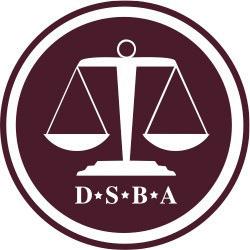
































EXECUTIVE DIRECTOR
Mark S. VavalaEDITORIAL BOARD
Laina M. Herbert Jason C. Powell Kristen S. Swift Seth L. ThompsonDenise Del Giorno Nordheimer
Adria B. Martinelli Victoria R. Sweeney Holly O. Vaughn WagnerPUBLICATIONS EDITOR
Rebecca Baird
The Bar Journal is published and distributed by the Delaware State Bar Association
405 North King Street, Suite 100 Wilmington, DE 19801
P: 302-658-5279
F: 302-658-5212 www.dsba.org
© Copyright 2022 by the Delaware State Bar Association. All Rights Reserved.

The Bar Journal is the independent journal of the Delaware State Bar Association. It is a forum for the free expression of ideas on the law, the legal profession and the administration of justice. It may publish articles representing unpopular and controversial points of view. Publishing and editorial decisions are based on the quality of writing, the timeliness of the article, and the potential interest to readers, and all articles are subject to limitations of good taste. In every instance, the views expressed are those of the authors, and no endorsement of those views should be inferred, unless specifically identified as the policy of the Delaware State Bar Association.
The Bar Journal is published monthly with a combined July/August issue.
All correspondence regarding circulation, subscriptions, or editorial matters should be mailed to:
Editor, DSBA Bar Journal
Delaware State Bar Association
405 North King Street, Suite 100 Wilmington, DE 19801 or emailed to: rbaird@dsba.org
Letters to the Editor should pertain to recent articles, columns, or other letters. Unsigned letters are not published. All letters are subject to editing. Send letters to the address above, Attention: Editor, Bar Journal.
658-5279, ext.
rbaird@dsba.org
BY KEVIN G. COLLINS, ESQUIRE, ANDREW C. DALTON, ESQUIRE, AND JASON D. WARREN, ESQUIREoting was once so uncontroversial. Everyone was supposed to vote. “Vot ing is not just a right. It’s a patriotic duty,” Harry Truman encouraged the public in a year when he was not on the ballot.
That was when the process was harder. Much of the nation didn’t have voting machines. Once installed, voting machines still led to long lines. When Frank Rizzo and Wilson Goode dueled, their stalwarts waited up to three hours to vote after queuing up at their polling places. Like most assemblies of moving parts, voting machines could break down.
But voting was good. When the Catholic countries of South America and Europe, holding elections on the Sabbath that American Protestants shunned, would have 80 percent turnout or greater, American commentators were appropriately shamed.
In Delaware, where the League of Women Voters was persistent and persuasive, the legislature was finally cajoled into offering full primaries beginning in 1978. After several cycles of heterodoxical candidates pestered and sometimes defeated party favorites, a Democratic legislature voted in 1984 to neuter primaries. Pete du Pont vetoed the bill, quoting Thomas Jefferson: “I know no safe depository of the ultimate powers of society but the people themselves. If we think them not enlight ened enough to exercise their control with a wholesome discretion, the remedy is not to take it from them, but to inform their discretion.”
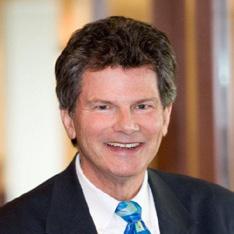
Jefferson’s advice is taking a beating these days. Part of the electorate treats informed discretion as if it were a social disease. Their tribunes lie awake nights, conjuring ways to prevent other portions of the electorate from voting. Many of their candidates say any election they lose will be illegitimate. Invidious allies threaten poll workers, hack registration records, interfere with the counting. Bow-tied instigators bury election boards in a barrage of bogus FOIA requests or litigation. Our interna tional foes have mobilized a long-term strategic assault on American elections. Their domestic allies enact legislation to criminalize registration drives.
Delaware has avoided the worst — so far. Here, elections are conducted under bipartisan auspices, from state and county administrators to polling-place checkers. Votes are tallied on secure, auditable devices. The lifetime ban on voting was lifted for most felons 20 years ago. Prison gerrymandering ended this year. When Joe Farnan and Charlie Oberly prosecuted election crimes, the guilty pleas came from well-connected party leaders, not perplexed plebeians. Return Day, where victor and defeated together traverse Georgetown in carriages, bookends the process.
The Delaware Way doesn’t come naturally. In one 1960s polling place, city Democratic chairman Leo Marshall challenged a poll-watcher named Norm Veasey to step outside for a fight. The future chief justice glared at Leo the Point, who backed off. (When Democratic mayors learned a decade later to ignore Marshall, city government prospered.)
Smugness is never in order. Where there is no rebuilding, there is erosion. Election administration in Delaware and the nation needs improvements. Here, without polemics or punditry, is a punch list.
Ranked-Choice Voting: A voter who disagrees with the majority party, but sees the minority party behaving badly, has nowhere to go. If voters could choose in order of preference, the threat of fluke victories by a marginal candidate with minority support would be eliminated. Third-party votes would be neither wasted nor counterproductive, no longer spoilers. (Voting for all-state basketball has used ranked-choice for 35 years. It works.)
Mail-In Voting. Cramming a half-million voters into booths within 13 dusky November hours is a needlessly frenetic exercise. Most people would love a chance to vote on a weekend or by mail. The first leg of a constitutional amendment to align Delaware with other leading states with early and mail voting passed the House of
Smugness is never in order. Where there is no rebuilding, there is erosion. Election administration in Delaware and the nation needs improvements.
Representatives in 2020 by 38-3. A dozen of those ayes went into hiding this year. For the first time since the repeal of Blue Laws, lawmakers opted not to make life more convenient. For years, millions have voted by mail for corporate directors or in proxy contests. Can’t we do the same for the Clerk of the Peace?
Reapportionment. Over five cycles, beginning in 1980, public opinion has favored a neutral process. In 2017, Bryan Townsend and Anthony Delcollo proffered the best bill yet, but it only passed in one chamber. A legislature that promises to be brimming with idealists of both parties could save its successors from future stress by enacting such a bill soon.
Recount Procedure. Richard Forsten illustrated in the Fall 2016 edition of Delaware Lawyer how, depending on the situation, post-election remedies are potentially contradictory.
Nationally. The Supreme Court needs to respect the will of the people. The Roberts Court shed its umpire’s mask to eviscerate
the Voting Rights Act by inventing an “equal sovereignty doctrine” with scant historical antecedent. Future generations will regard Citizens United as Lochner 2.0. Electoral College. Bill Roth and Cale Boggs tried to eliminate it. Roth joined a 339-70 House majority in 1969, Boggs a 53-34 Senate plurality in 1970 to amend the Constitution to elect the President by popular vote. After George Wallace’s 1968 campaign nearly made the segregationist caucus into the kingmaker, President Nixon and both parties’ leadership pushed unsuccessfully to modernize Presidential elections. National popular vote would enfranchise Republicans in Delaware and California, Democrats in Kansas and South Carolina. Campaigns would be national, and not, as in 2020, concentrated in 41 Congressional districts.
However busy our lives, lawyers cannot be, in the President’s words, “passive witnesses.” Voting is the initial step of lawmaking. Reasoned voting, informed discretion, is all about us. The enemy of my enemy is not my friend. Don’t be like the lefties who made excuses for Castro or conservatives who did likewise for Franco.
We grew up with the serene assurance that every election would be free and fair. Yet, if a dedicated cabal can end democracy in Greece, where it was born, it can hap pen anywhere.
You cast a vote for many reasons, but above all, vote in favor of being able to vote again.
Chuck Durante, the President of the Delaware State Bar Association, is a partner at Connolly Gallagher LLP, fellow of the American College of Trust and Estate Counsel, chair of the Board of Editors of Delaware Lawyer maga zine, president of the Delaware Sports Museum and Hall of Fame, trustee of the Delaware Historical Society and president of the Delaware Sports writers and Broadcasters Association. He can be reached at cdurante@ connollygallagher.com.
BUILDING RELATIONSHIPS
PERMANENT ACCOCIATE | PARTNER | SUPPORT STAFF PLACEMENT SERVICES
PERMANENT ACCOCIATE | PARTNER | SUPPORT STAFF PLACEMENT SERVICES
BUILDING RELATIONSHIPS for OVER 40 YEARS 2022 215.981.5455 kruza.com
|
|
1980 215.981.5455 kruza.com
215.981.5455 kruza.com
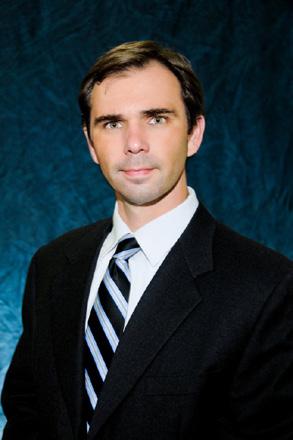
hat do you like about being a lawyer?” a good friend’s son asked as we sat in my office over lunch, after his father reached out. I had not seen the young man in over a decade. Having graduated earlier this year, he is now playing a final year of college soccer while taking graduate courses during the additional NCAA eligibility extended in response to the pandemic. Law school appeared on the short list of possible plans thereafter.
Used to asking questions more than answering them, I took a moment. A few immediate thoughts came as true but went as too small or abstract: the lack of monotony, the ability to meet a wide array of people, the good stories, the satisfaction of being a small cog in the machine that ever endeavors to keep the societal train on its tracks. “Being part of the solution. At least in my areas of practice, no one reaches out to say, ‘Everything is great, just wanted to let you know.’ The client has a problem that needs a resolution.”
Although the young man and I eventually got around to discussing earn ing potential — an absolutely necessary consideration with the seemingly endlessly escalating expense of law school — I can honestly say that the paycheck did not come to mind in response to his question. It also kindly disproved, at least for a moment, the theory occasional Rehoboth resident and co-host of ESPN’s Pardon the Interruption Tony Kornheiser attributes to the television producer Don Ohlmeyer that “The answer to all your questions is ‘money.’” 2 I’d like to think people are not that cynical.
In further considering the question after the young man left, I realized the question was derivative of Office Space ’s exercise of “Our high school guidance counselor used to ask us what you would do if you had a million dollars and didn’t have to work and invariably whatever you’d say, that was supposed to be your career.” Occasionally the minutia of six-minute incre mental billing deflects and detracts from enjoyment of the larger mission, while serving as a constant reminder of just how expensive our product can be. It is nice to occasion ally remove billing from the equation, including as a bit of a reminder back to when money was not the lone reason for taking on the challenges of school, the bar exam, and then practice.
The reason I first met the young man considering law school: he was on my team for one of the seasons that I coached with the Henlopen Soccer Club. Back then, he was clearly the most gifted player on that squad and his love
Occasionally the minutia of six-minute incremental billing deflects and detracts from enjoyment of the larger mission, while serving as a constant reminder of just how expensive our product can be.
of the game was already evident. Thus, I do not attribute any of his subsequent success on the field to our grand total of eight practices and eight games in a rec league. I am willing to entertain the possibility that having a lawyer as a vol unteer coach planted a seed. I am certain it began my friendship with his father.
The term “pro bono” is shorthand for “pro bono publico,” i.e., for the public good. The full phrase connotes a broader purpose — and obligation — than sim ply rendering services on a case or two without sending a bill. Our system of governance does not grant just anyone the authority to legally represent and advocate for our fellow citizens in their important legal affairs. That ability rests with the few, though unlike some other jurisdictions, Delaware does not man date pro bono work. It remains a moral obligation, a microcosm the 14th century Persian poet mystic Hafiz’s line:
Even After
All this time
The Sun never says to the Earth, “You owe me.”
Notes:
1. I am also pro Bono. The Joshua Tree album was among the initial twelve tapes that I received for a penny when signing up for a music club. (That may have been my first lesson in reading the fine print.)
With all of his humanitarian efforts, the U2 front man appears to definitely, as my father would say, give a rip. From this side of the pond, we had our own Bono, i.e., the first part of Sonny & Cher – even pronounced with the two long “o” sounds -- though they were largely before my time (also as my father would say) and not part of my childhood tape col lection.
2. In fairness, in the world of televised sports, Mr. Ohl meyer may well be correct. From the view of a con sumer, it seems to be the case.
Bar Journal Editor Seth L. Thompson joined Parkowski, Guerke & Swayze in July 2019, and he works predominantly in the firm’s Wilmington office. His prac tice focuses on civil litigation, family law, and municipal law. For six years, he also served as a Legislative attorney for the Delaware House of Representatives. He has served on the Board of Professional Responsibility, the Board of Bar Exam iners, and the Executive Committee for the Terry-Carey American Inn of Court, as well as serving as the Sussex County Bar Association President. He may be reached at sthompson@pgslegal.com.
DSBA has a new member benefit to share! CLEAR is a faster, easier way to travel at airports nation wide. With CLEAR, you can move through security faster and easier at 40+ airports nationwide. Valued trav elers of the Delaware State Bar Association get two months free of CLEAR — a $30 value — unlocking frictionless travel. CLEAR’s opt-in service uses a person’s unique characteristics such as their eyes or face to securely and efficiently verify identity. CLEAR’s platform is SAFETY Act Certified and earned FISMA-High status — the highest cybersecurity ratings by the DHS and TSA. For more information and to take advantage of this new benefit, visit the Member Benefits page of www.dsba.org.
Condolences to the family of Fareed (“Fred”) Paul Barakat , Esquire, who died on January 22, 2022.
Condolences to the family of Robert C. Lefton, Esquire, who died on August 23, 2022.
Condolences to the family of Marc P. Niedzielski, Esquire, who died on August 28, 2022.
Condolences to the family of Robert T. Aulgur, Jr., Esquire, who died on August 29, 2022.
If you have an item you would like to submit for the Of Note section, please contact Rebecca Baird at rbaird@dsba.org.
Congratulations to DSBA member
The South Asian Bar Association of Delaware (“SABA-DE”), which is celebrating its 15th anniversary this year, has announced its new Board of Directors: President, Ni tika Fiorella, Fish & Richardson ; Vice President, Shanti Katona, Polsinelli ; Secretary, Roopa Sabesan, White and Williams LLP ; Treasurer, Faiz Ahmad, Skadden, Arp, Slate, Mea gher & Flom LLP ; SABA National Rep., Bindu Palapura, Potter An derson & Corroon LLP ; VP Attorney Outreach, Rupal Joshi, Skadden, Arps, Slate, Meagher & Flom LLP ; VP Judicial Outreach, Shakuntla Bhaya, Doroshow, Pasquale, Krawitz
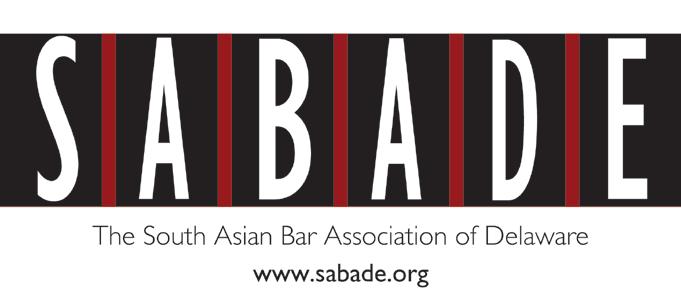
& Bhaya ; VP Law Student Outreach, Alpa Bhatia, Offit Kurman, P.A .; VP Community Outreach, Monil Amin, Delaware Department of Justice ; VP Programming, Anne Gwal, Exelon ; VP Communications, Emilie Ninan, Ballard Spahr LLP
“I’m extremely proud of what SABADE has accomplished to date and am excited about the organiza tion’s future post-COVID,” said in coming president Nitika Fiorella. “SABA-DE will continue to actively support its members, the Delaware legal community and the communi ty at-large by supporting programs on substantive topics of interest, joint events with our fellow affin ity bar organizations and diversity pipeline projects with community partners.”
Clarissa R. Che noweth, Esquire, of Potter Anderson & Corroon LLP, and her husband, Mike, (and dog, Mozie, too) who welcomed their baby son, Laird Robert, on August 23, 2022, weighing 7 pounds, 19 ounces.
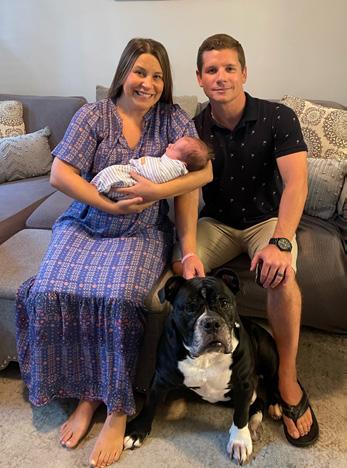
The Bar Journal seeks articles of broad focus and general interest to attorneys. All submissions are subject to review by the Editorial Board.
For information on submitting articles for publication in the Bar Journal, please contact Rebecca Baird at rbaird@dsba.org.

This committee provides peer counseling and support to lawyers overburdened by personal or practice-related problems. It offers help to lawyers who, during difficult times, may need assistance in meeting law practice demands. The members of this committee, individually or as a team, will help with the time and energy needed to keep a law practice operating smoothly and to protect clients. Call a member if you or someone you know needs assistance.
New Castle County
Karen Ann Jacobs, Esquire, Chair*
Dawn L. Becker, Esquire
John P. Deckers, Esquire
David J.J. Facciolo, Jr., Esquire
David J. Ferry, Jr., Esquire
Robert D. Goldberg, Esquire
Laura Nastase Najemy, Esquire
Denise D. Nordheimer, Esquire
Kuhu Parasrampuria, Esquire
Kenneth M. Roseman, Esquire*
Yvonne Takvorian Saville, Esquire
R. Judson Scaggs, Jr., Esquire*
Victoria R. Sweeney, Esquire
Gregory Brian Williams, Esquire
Lydia E. York, Esquire
Kent and Sussex County
Candace E. Holmes, Esquire, Chair
Crystal L. Carey, Esquire
Edward Curley, Esquire
Clay T. Jester, Esquire
Christopher D. Tease, Esquire
The Honorable William L. Witham, Jr.
Honorary Volunteer Members:
Victor F. Battaglia, Sr., Esquire
Mary C. Boudart, Esquire
Wayne A. Marvel, Esquire
Bayard Marin, Esquire
Michael F. McTaggart, Esquire
Mary E. Sherlock, Esquire**
I. Barry Guerke, Esquire**
Dennis L. Schrader, Esquire**
E. Alan Uebler, Esquire
David A. White, Esquire
Carol P. Waldhauser, Executive Director
DSBA/DE-LAP Liaison
*Certified Practice Monitor
** Past Co-Chair
Tuesday, October 4, 2022 • 12:00 p.m. – 1:00 p.m.
The Ethics of Venting
1.0 hour CLE credit in Enhanced Ethics
Live Webinar via Zoom
Saturday, October 15, 2022 • 1:00 p.m. – 4:00 p.m.
DSBA Fall Festival
Ramsey’s Farm, Wilmington, DE
Tuesday, October 18, 2022 • 10:00 a.m. – 12:00 p.m.
Arbitration Training and Certification in Employment and Labor Law 2022
2.0 hours CLE credit
Live Seminar at DSBA with Zoom Option Wednesday, October 19, 2022 • 12:00 p.m. – 1:00 p.m.
Behind the Cool Image 2022-2023: Lawyering in the 21st Century
Workshop 1: We are Making our Case- Fitness Matters
1.0 hour CLE credit in Enhanced Ethics
Live Seminar with Zoom option
Friday, October 21, 2022 • 9:00 a.m. – 4:30 p.m.
Fundamentals of Family Law 2022
6.3 hours CLE credit including 0.5 hour in Enhanced Ethics Live Seminar at DSBA with Zoom Option Wednesday, October 26, 2022 • 9:00 a.m. – 10:00 a.m. Cyber-Security…When Is it Enough?
1.0 hour CLE credit in Enhanced Ethics
Live Seminar at DSBA with Zoom Option Wednesday, October 26, 2022 • 1:00 p.m. – 3:00 p.m.
Preparing and Giving Openings and Closings to a Jury: And Things to Watch Out For with the Other Side
2.0 hours CLE credit
Live Seminar at DSBA with Zoom Option Thursday, October 27, 2022 • 8:00 a.m. – 10:00 a.m.
Christopher W. White Distinguished Access to Justice Awards Breakfast
Riverfront Events / Hyatt, Wilmington, DE Saturday, October 29, 2022 • 9:00 a.m. – 3:00 p.m.
Wills for Seniors Elsmere Fire Hall, Elsmere, DE
Thursday, November 3, 2022 • 12:00 p.m. 1:30 p.m. Torts and Social Media
1.5 hours CLE Credit in Enhanced Ethics Live Seminar at DSBA with Zoom Option
Friday, November 4, 2022 • 9:00 a.m. – 12:15 p.m.
Supreme Court Review 2022: A Discussion of Decisions at the Highest State and Federal Judicial Levels
3.0 hours CLE credit
Live Seminar at DSBA
Dates, times, and locations of Events and CLEs may occasionally change after time of press. Please consult the DSBA website for the most up-to-date information at www.dsba.org.
Tuesday, October 11, 2022 • 12:00 p.m.
Litigation Section Meeting
Morris James LLP, 500 Delaware Avenue, Suite 1500, Wilmington, DE Friday, October 14, 2022 • 12:00 p.m.
Workers’ Compensation Section Meeting Zoom Meeting, see Section listserv message for link and password
Wednesday, October 19, 2022 • 9:00 a.m.
ADR Section Meeting
Zoom Meeting, see Section listserv message for link and password Wednesday, October 19, 2022 • 12:30 p.m.
LGBTQ+ Section Meeting
TBD
Thursday, October 20, 2022 • 12:00 p.m.
Executive Committee Meeting
Delaware State Bar Association, 405 North King Street, Suite 100, Wilmington, DE Thursday, October 20, 2022 • 4:00 p.m.
Elder Law Section Meeting
Estate and Elder Law Services of Delaware, P.A., 2961 Centerville Road, Suite 350, Wilmington, DE and via Zoom
Thursday, October 27, 2022 • 4:00 p.m.
Family Law Section Meeting Zoom Meeting, see Section listserv message for link and password
Tuesday, November 1, 2022 • 3:30 p.m.
Estates and Trusts Section Meeting Zoom Meeting, see Section listserv message for link and password Tuesday, November 8, 2022 • 12:00 p.m.
Litigation Section Meeting
Morris James LLP, 500 Delaware Avenue, Suite 1500, Wilmington, DE Friday, November 11, 2022 • 12:00 p.m.
Workers’ Compensation Section Meeting Zoom Meeting, see Section listserv message for link and password
Refer to the DSBA Section Listserv messages for the most up-to-date information on Section Meetings. Please contact LaTonya Tucker at ltucker@dsba.org or (302) 658-5279 to have your Section or Committee meetings listed in the Bar Journal .
Charles J. Durante
President
Kate Harmon
President-Elect
Mary Frances Dugan
Vice President-at-Large
David A. White
Vice President, New Castle County
Anthony V. Panicola
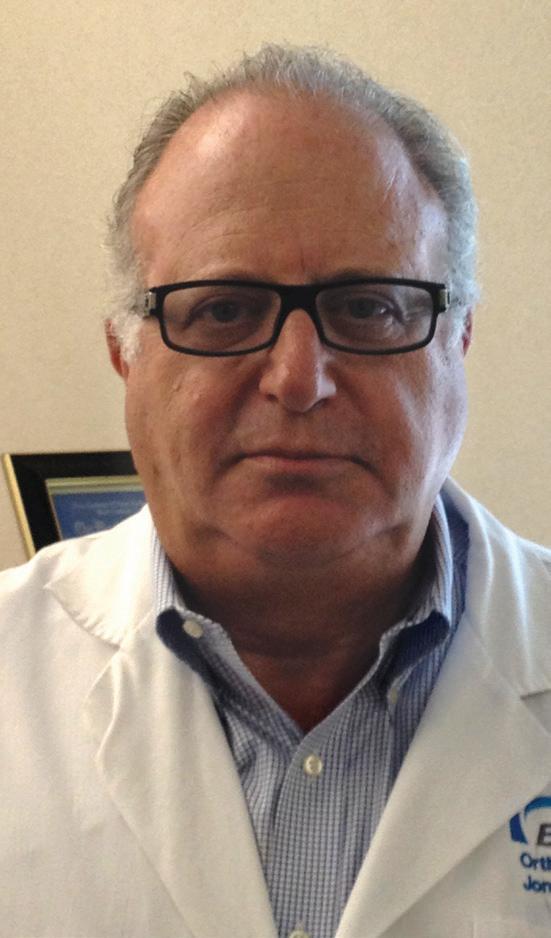
Vice President, Kent County
Alaina M. Chamberlain
Vice President, Sussex County
Samuel D. Pratcher III
Vice President, Solo & Small Firms, New Castle County
Jessie R. Benavides
Vice President, Solo & Small Firms, Kent County
Stephen A. Spence
Vice President, Solo & Small Firms, Sussex County
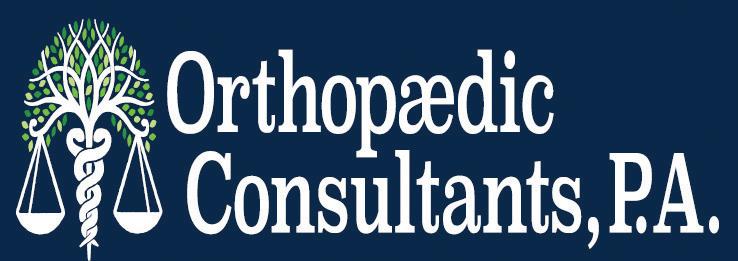
Francis J. Murphy, Jr.
Secretary Mae Oberste
Assistant Secretary
Jennifer Ying Treasurer
Ian Connor Bifferato Assistant Treasurer
Kathleen M. Miller Past President
The Honorable Abigail M. LeGrow Judicial Member
Brandon R. Harper Assistant to President
Thomas P. McGonigle
Legislative Liaison
Loren R. Barron
Sean Michael Brennecke
Lori A. Brewington
Crystal L. Carey
Paige C. Chapman
Alberto E. Chávez
Over
Joseph D. Farris III
Richard A. Forsten
Katelin A. Morales
Denise Del Giorno Nordheimer
Victoria R. Sweeney Members-at-Large
Mark S. Vavala
Executive Director
As a self-proclaimed futurist, I have always felt it is my responsibility to anticipate where technology is tak ing the law. These prophecies deal with substance, procedure, ethics and our legal culture. During these many years, we have anticipated electronic research, electronic filing, CD-rom briefs, live video testimony, and remote juries (not yet in Delaware).
I anticipated writing this column as a spoof on the past and focus on the future of biometrics and the law. It wasn’t until I began the research that I realized there
is no forecasting about it. Biometrics has already met the law and the law is win ning — with vengeance. Let me give you a couple of examples.
But first, let’s start with the basics: Biometrics is defined as “the measure ment and analysis of unique physical or behavioral characteristics (such as fin gerprint or voice patterns) especially as a means of verifying personal identity.”1 Now for the examples (you cannot make this stuff up):
In 2021, Plaintiff Shannon Carpenter sued McDonald’s, claiming it captured and stored her “voiceprint” without her
consent, in violation of Illinois Biomet ric Information Privacy Act (BIPA). (A marketing idea, gone awry). The fastfood chain was worried enough about the claim to have it removed to Federal District Court. 2
The Illinois BIPA was also the center of a recent $92 million class action settle ment with TikTok’s parent company. According to Clifford Chance’s review of the complaint, “the app attempts to ascertain users’ race, gender and age by using biometric identifiers and facial recognition algorithms to map users’ faces in their videos.”3
And we can’t leave out Facebook, which just settled a class action under the BIPA for $650 million. That is just for the 1.4 million people in Illinois.4 I want to comeback as a plaintiffs’ class action lawyer in my next life.
Where do we stand in Delaware? We have been trying since 2018 with House Bill 350, to create the Biometric Privacy Protection Act.
So where do we go from here? More than 20 years ago, I wrote an article called “The Blue Chair of the 21st cen tury.” It involved a client chair a law firm could use to measure the biometrics of the person seated in it. Wouldn’t it be interesting to actually know whether your client is telling the truth? While the technology may exist, I believe the Delaware Code of Professional Responsibility would rightfully prevent us from using it.
However, I think we will see a num ber of legal battles on whether “micro expressions” will fall within the statutes as prohibited biometrics. Micro expres sions are considered “soft biometrics” and can be defined as facial expressions captured and used to assess truth, un derstanding and awareness. Now that we have cameras in the courtroom, it is only a question of time before the Court captures an attorney’s “eye roll” in response to a ruling. In the future, when you are at the podium and responding to a question from the Bench, be sure not to put your “tongue in your proverbial cheek” when you are done talking. You think I jest? Well, think again. Simply go to the App Store on your iPhone and you will find “EQally.” This is an app designed by experts to teach you how to improve your intelligence by learning
to read others’ micro expressions. Jury analytics software has been developed several years ago to assist jury consultants in applying and measuring jurors’ micro expressions.5
There is no doubt the use of micro expressions software will become a valu able tool in your technology toolbox in the next few years. We might even find it being taught in law schools.
Since I am now retired from active practice, it may be safe for me to publish my next column, “How to Read Your Judge’s Micro Expressions — What Ev ery Lawyer Needs to Know.”
1. “Biometrics Definition; Meaning.” Merriam-Web ster. Merriam-Webster. Accessed September 21, 2022. https://www.merriam-webster.com/diction ary/biometrics.
2. Holland, Jake. “McDonald’s Biometric Privacy Law suit Removed to Federal Court.” Bloomberg Law, June 1, 2021. https://news.bloomberglaw.com/ privacy-and-data-security/mcdonalds-biometricprivacy-lawsuit-removed-to-federal-court.
3. “The Coming Wave of Biometric Class-Action Suits.” Clifford Chance, March 2021. https://www. cliffordchance.com/briefings/2021/03/The-Com ing-Wave-of-Biometric-Class-Action-Suits.html.
4. “How to Find out If You’re Part of the $650 Million Illinois Facebook Settlement.” NBC Chicago. NBC Chicago, June 1, 2022. https://www.nbcchicago. com/news/local/are-you-part-of-the-650-millionclass-action-illinois-facebook-settlement-hereshow-to-check/2847134/.

5. Hernández, Gabrielle Orum. “Facial Recognition Technology Used in Jury Consulting.” Law.com, April 17, 2017. https://www.law.com/2017/04/17/ facial-recognition-technology-used-in-jury-consulti ng/?slreturn=20220810110149.
Richard K. Herrmann is a Visiting Professor and Director of Law and Tech nology at Delaware Law School, and serves as As sociate Director of Research for the Center of Legal and Court Technology at William & Mary Law School. He can be reached at rkherrmann@widener.edu.
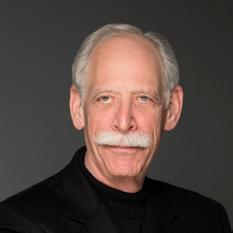

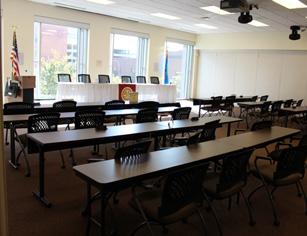
Client complaints may seem inevitable. The Professional Conduct Rules provide for near absolute immunity to clients who file complaints. There is no statute of limitations on the filing of complaints, and the current record holder is 23 years from offense to sanc tion. Also, the Office of Disciplinary Counsel is not limited to investigating and prosecuting client-filed complaints. They can also act on judicial referrals, informal peer reports, and any other conduct or misconduct that they discov er by any other means, but practitioners can still take several steps to reduce their chances of receiving a complaint.
I have received too many calls from attorneys asking where they can obtain a copy of the Conduct Code. This both suggests that they have not recently read the Rules and also that they are unaware that the Conduct Code was replaced by the Rules of Professional Conduct approximately 40 years ago. Attorneys, especially those that have been practicing for decades, often tell me that they operate under the “smell test” and assume that as long as it doesn’t feel wrong or they are not stealing client funds, they should be fine. All attorneys should be aware that the practice of law is highly regulated. Many of the rules are technical, and ignorance of the Rules is unlikely to be a successful defense of a violation.

The last, best chance to avoid disci plinary complaints may be in the careful
selection of clients. All attorneys need to develop a sixth sense when it comes to screening for troublesome clients. Many of my disciplinary defense clients tell me that they knew that this client was going to be trouble as soon as they met them. Learn to listen to that inner voice.
Develop your own list of red flags but consider including the following. Clients who have had multiple prior counsel should be avoided — especially if the client refuses to give you permission to talk to the prior counsel. Clients who come to you on the eve of the statute of limitations running are rarely a good risk. A client who suggests that there is a far-reaching conspiracy against them will inevitably conclude that you are part
of that conspiracy, particularly if they do not achieve success as they define it. Clients who are unrealistic as to outcome or the timing of their matters start the attorney-client relationship preordained to be unhappy with your representation and results. Generally, clients who are rude to you or your staff or are bullying or controlling may make that person dif ficult to work with. In the worst cases, the client is so off-putting that you may avoid that client and matter, exposing yourself to eventual claims of lack of diligence and communication. If a client presents with a strong need for unneces sary hand holding (for which they are rarely willing to pay), you should ask yourself whether you are willing to return

what may be multiple calls a day. See “Just Say No: Clients to Avoid” (“Ethi cally Speaking,” July 2003) and “More Clients to Avoid” (“Ethically Speaking,” January 2020).

In addition to making sure you have the right client, you should make sure that you have taken on the right case. Is this a case that you are competent to handle or are willing to get competent? Does the case have enough value to merit the time and attention that your client is demanding? There is no sliding scale for effort based on value, and if you neglect a matter because you are pessimistic as to the outcome, you expose yourself to client dissatisfaction and a complaint.
Is the case meritorious? In addition to possible Rule 11 sanctions, dismissal, and reputational harm to your practice, there may also be disciplinary consequences if you are later determined to have assisted your client in a fraud or other wrongful conduct or even if you are simply found to have lacked diligence in screening the matter. Remember that you have a duty to the court and profession that may su persede your duty to the client.
Also be wary of serving as local coun sel. Delaware courts have rejected the concept of “mere local counsel,” finding that Delaware counsel in pro hac vice admissions are actually co-counsel, and Delaware counsel may have full liability for the merits of the pleadings that they file. See “Pro Hac Vice Admissions: Local Counsel on the Hook” (“Ethically Speak ing,” March 2006).
Finally, be very wary of scams. Do you really believe that someone in China or Saudi Arabia heard of your fame as a Delaware Family Court practitioner and is asking you to file a debt collection or uranium mine enforcement action in Delaware for them? Falling for the lure of an exorbitant fee, you will inevitably be given a foreign check to deposit in your escrow account followed by an urgent request to disburse some or all of it as soon as possible — and before you can discover that the check is a forgery. See “Are You Really Too Smart to be Scammed? Inter


Rule 1.16 provides for permissive withdrawals from an attorney-client rela tionship. If a client or matter has slipped through your screening process, it’s not too late. However, if you delay, you may find that your request to withdraw from matters already in litigation may be denied by the court.
A suit to collect fees is almost always met by an answer and countersuit for malpractice and often a disciplinary com plaint filed as leverage in defense. Instead, consider including an agreement to submit fee disputes to the Fee Dispute Commit tee of the Delaware State Bar Association. Requiring retainers and evergreen renew als of retainer balances can also avoid the need for collections. See “Fee Troubles” (“Ethically Speaking,” September 2022).
Remember that non-practice-related conduct may also be disciplinary. Rule 8.4 provides that criminal conduct commit ted outside of the practice of law may also result in sanctions. All felonies and any misdemeanors involving moral turpitude or violence may also be disciplinary.
The above list, with the possible excep tion of the non-practice-related criminal conduct, also applies to avoiding malprac tice claims.
“Ethically Speaking” is intended to stimulate awareness of ethical issues. It is not intended as legal advice nor does it necessarily represent the opinion of the Delaware State Bar Association.
“Ethically Speaking” is available online. Columns from the past five years are available on www.dsba.org.
Charles Slanina is a partner in the firm of Finger & Slanina, LLC. His practice areas include disciplinary defense and consultations on professional respon sibility issues. Additional information about the author is available at www. delawgroup.com.

Oc tober is here, and that often means the days are colorful with falling leaves, chilling breezes, and grow ing anticipation of less daylight. Ad ditionally, October is the month to celebrate pro bono in the legal profession. But, did you know that October is also Civility Month?
With social media, the pandemic, and vast cultural changes leaving some more anxious and stressed than ever be fore, there seems to be a noted upswing in rudeness, distrust, and even abusive tactics. The legal profession is not ex cluded from this trend.
Clearly, a lawyer should inspire pub lic regard for the profession, as well as the judicial system. Any lack of civility does not reflect well on the legal profession, nor does it inspire the public’s confi dence. Remember, life works better when things are done with civility. Therefore, as legal professionals we should not leave home without it!
Civility within our profession and culture is both a legal and life skill. So, whether a seasoned lawyer or a young lawyer, let October be a month to remind and refresh these skills.
Collins Dictionary defines civility as politeness and courtesy and a polite action or expression.1 In other words, civility is the act of showing regard for others by being polite, like the civil ity you showed in speaking kindly to
In general, a lawyer should develop and maintain the qualities of integrity, compassion, learning, civility, diligence, and public service that mark the most admired members of our profession.
someone who has hurt your feelings. Ci vility comes from the Latin word civilis, meaning “relating to public life, befitting a citizen.” In plain language, be friendly and nice to everyone.
Even our first President, George Washington, in 1745, then a 13-year-old schoolboy in Virginia, jotted down a lengthy set of social rules in his work book to refine and implement. Like many other young men in the American colonies, young George Washington was learning how to conduct himself in the fashion of a respectable Brit ish gentleman. Following instruction, George titled his notes The Rules of Civility
For most of us, when we were in grade school, we learned that manners always matter. On the other hand, through the years some of us, both sea soned and new to the practice the legal profession, need to look in the mirror and be reminded of the legal and life skill of civility.
According to Siobhan A. Cullen in the article of “Practice Points: Civility in the Practice of Law”:
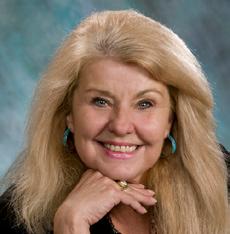
C ivility in our profession is waning, especially in the litigation are na. Lawyers routinely sling insults at each other, and even at judges. Yelling occurs in deposi tions and courtrooms. Requests for extensions are improperly withheld to gain tactical advan tage. Email, while a convenient communication tool, has led many of us to write things that could have been said with more tact. 2
All too often, the courtroom is mis taken for a coliseum. Tempers flare! Ci vility is imperative, as well as mandatory, for an attorney to maintain self-control. However, we know heated discussions do occur in the courtroom and during depo sitions; but, the attorney must maintain the proper decorum.
Observing this negative trend, some in the field believe that this lack of, or decline in, decorum is the result of a lack of education about civility. Others point to the lack of time interacting face-to-face with opposing counsel, and even with judges. Without question, today most communications with opposing counsel are generally via email, and in some cases, even via text. We know too that any legal
As a legal professional, you have a choice to be civil or not to be. This choice reminds me of the old Cherokee parable about two wolves:
An old Cherokee is teaching his grandson about life. “A fight is going on inside me,” he said to the boy. “It is a terrible fight and it is between two wolves. One is evil — he is anger, envy, sorrow, regret, greed, arrogance, self-pity, guilt, resentment, inferiority, lies, false pride, superiority, and ego.”
He continued, “The other is good — he is joy, peace, love, hope, serenity, humility, kindness, benevolence, empathy, generosity, truth, compassion, and faith. The same fight is going on inside you — and inside every other person, too.”
The grandson thought about it for a minute and then asked his grandfather, “Which wolf will win?”
The old Cherokee simply replied, “The one you feed.” 3
Do we feed the civil wolf or the uncivil wolf? Who do we want to win?
The choice is ours. If you choose the civil wolf to solidify your life and legal skill of civility, there are many rules governing trial conduct, and the conscientious lawyer should be familiar with them.
words or demeanor; observance of local practice and custom as to the manner of addressing the Court; and appropriate dress in all Court proceedings.
4. A lawyer should represent a client with vigor, dedication, and commitment. Such representations, however, does not justify conduct that unnecessarily delays matters, or is abusive, rude, or disrespectful. A lawyer should recognize that such conduct may be detrimental to a client’s interest and contrary to the administration of justice.4
professional that engages in undignified, or discourteous conduct, is degrading to a tribunal.
The Delaware State Bar Association and the Delaware Supreme Court have jointly adopted the Principles of Profes sionalism for Delaware Lawyers for the guidance of lawyers. Accordingly, the purpose of adopting the principles is to promote and foster the ideals of profes sional courtesy, conduct and coopera tion. Furthermore, these Principles are fundamental to the functioning of our system of justice and public confident in that system.
In general, a lawyer should develop and maintain the qualities of integrity, compassion, learning, civility, diligence, and public service that mark the most admired members of our profession.
Specific to civility in Principles of Professionalism for Delaware Lawyers, “professional civility is conduct that
shows respect not only for the courts and colleagues, but also for all people encountered in practice” and includes the following:
1. Promptness in meeting appoint ments, consideration of the sched ules and commitments of others, adherence to commitments whether made orally or in writing, prompt ness in returning telephone calls and responding to communications and avoidance of verbal intemperance and personal attacks.
2. A lawyer should not communi cate with a Court concerning pend ing or prospective litigation without reasonable notice whenever possible to all affected parties.
3. Respect for the Court requires: careful preparation of matters to be presented; clear, succinct, and candid oral and written commu nications; acceptance of rulings of the Court subject to appropriate review; emotional self-control; the absence of scorn and superiority in
It is no secret that lawyers are under siege in a profession of high incidence of anxiety, distress, and suicide. My hope is that reminder is a driving force for you to brush off the dust and not leave home without your life and legal tool of civility. Remember, civility is a transformative power in dealing with others while making a difference in the depth of your fulfillment, contentment, and wellness as both an individual and as a legal profession.
If you, or someone you know, are having difficulties that may be affect ing their quality of life and/or profes sionalism — call our confidential line (302) 777-0124 or email cwaldhauser@ de-lap.org.
Notes:
1. “Civility Definition and Meaning: Collins English Dictionary.” Civility definition and meaning | Collins English Dictionary. HarperCollins Publishers Ltd. Ac cessed September 21, 2022. https://www.collinsdic tionary.com/us/dictionary/english/civility.
2. Cullen, Siobhan A. “Civility in the Practice of Law.” Americanbar.org, May 18, 2018. https://www.ameri canbar.org/groups/litigation/committees/productsliability/practice/2018/civility-in-the-practice-oflaw/.
3. The Fight of Two Wolves Within You. (2019, Au gust 29). Retrieved September 21, 2021, from https://deanyeong.com/fight-two-wolves-inside/
4. “Principles of Professionalism for Delaware Law yers.” Delaware State Bar Association. Accessed September 21, 2022. https://media1.dsba.org/ public/media/pdfs/Principles%20of%20Profes sionalism%20for%20DE%20Lawyers.pdf.
Carol P. Waldhauser is the Executive Director of the Delaware Lawyers As sistance Program and can be reached at cwaldhauser@de-lap.org.

Chapter 13 bankruptcy allows indi viduals or married couples to manage their debt, preserve their assets and reorganize their financial lives. This article highlights some of the options available to assist distressed debtors in getting their finances back in order under chapter 13.
Stopping a foreclosure sale is a common reason for filing chapter 13. Foreclosure in Delaware usually takes several months before a sheriff sale is completed, and a chapter 13 petition can be filed at any time before the sale. Upon filing of the petition, the sheriff sale is immediately and automatically “stayed.” After filing the petition, the debtor can file a plan that provides for treatment of the past due mortgage payments (arrears). Most plans provide for a cure of arrears over a period of three to five years. Debtors also normally resume making their regular monthly mortgage payment immediately after filing. This process is highly beneficial to debtors as most do not have the fi nancial resources to immediately cure arrears in one lump sum. Chapter 13 thus enables financially distressed homeowners to save their home with an orderly repayment plan.
A chapter 13 bankruptcy also allows debtors to keep their car and avoid repossession. In some circumstances, a creditor also will return a car repossessed before the bankruptcy. Similar to mortgage arrears, there is no requirement to cure arrears immediately upon filing. Debtors have different options for re-working their car loan, depending upon how far before the bankruptcy filing the vehicle was purchased:
a. If the vehicle was purchased within two and one half years pre-bankruptcy, then the debtor must pay the entire balance of the car loan plus interest over up to five years. This results in a lower monthly payment for the debtors but adds months to the loan term.
b. If the vehicle was purchased more than two and one half years pre-bankruptcy, the debtor may “cram-down” the loan by paying back the fair market value of the vehicle rather than pay ing the full balance of the loan. Until recently,
the value of cars has depreciated quickly and this allowed debtors to reduce the balance owed resulting in lower payments over the term of the Plan.
c. Debtors can also often use a coerced interest rate (usually called the “Till” rate) rather than the contract rate to reduce the rate of interest being paid on a vehicle, many times saving the debtor hundreds, if not thousands, of dollars in interest over the term of the plan. The “Till” rate is usually 1-3 percent over the prime rate. (Imagine reducing an interest rate from 18 percent to 5 percent on a five year repayment).
Under Delaware law, most mobile homes are considered motor vehicles and are titled through the Delaware Department of Motor Vehicles. Therefore, mobile homes are subject to the same rules as cars. Mobile homes typically depreciate very quickly and it is common to see mobile home loans crammed down to the fair market value of the mobile home. Not only can a debtor reduce their principal balance, monthly payment and/ or reduce their interest rate, but debtors can also frequently reduce the loan term from a 15 or 20 year term to having their mobile home paid off in just 5 years.
While not as common as it once was, a debtor also can “strip-off” a second mortgage and elimi nate it upon discharge from chapter 13 Bankrupt cy, if the value the home is less than what it owes on the first mortgage. While in recent years, home prices in Delaware have increased significantly, it is still possible in some circumstances for debtors to eliminate junior liens and make their monthly budget more manageable.
Many debtors have fallen behind on their tax obligations to the IRS or the State of Delaware. Chapter 13 can stop tax levies and wage garnish ments by placing back taxes in the chapter 13 plan for repayment. Some older income taxes may even be discharged in bankruptcy as long as debtor timely filed their tax returns. Property
tax sales can also be stopped to enable repayment of these taxes through a chapter 13 plan.
In most chapter 13 bankruptcy cases, unsecured creditors will only be paid a small portion of their debt. If the debtor’s plan complies with the Bankruptcy Code, unsecured creditors are required to accept the payments proposed in the plan. The amount paid to unsecured creditors is based on several factors. First, if the debtors exceed their allowed exemptions and have more property than they are allowed to keep under applicable state or federal exemptions, then an amount equal to such excess must be included in the plan to be paid to unsecured creditors. Second, the Bankruptcy Code has a “Means Test” which is rather complicated and based largely on a snapshot of the debtor’s finances for the six months immediately preceding the bankruptcy filing, and determines the amount of money available at the end of the month to provide for some payment to unsecured creditors in the plan. Third, an amount to be paid to unsecured creditors under the plan is determined based on the debtor’s actual monthly budget. In most instances, unsecured creditors receive significantly less than full payment.
The chapter 13 Trustee supervises the chapter 13 case by examining the debtor, reviewing the debtor’s Petition, financial filings, tax returns, paystubs, and other documents to ensure that the chapter 13 filing and plan are proper. The chapter 13 Trustee, each month, also receives the chapter 13 Plan payments from the debtor and disburses the funds to creditors. The chapter 13 Trustee in Delaware works with debtors, creditors, counsel, and the Court to ensure that the goals of chapter 13 are met.
The Delaware consumer bankruptcy bar representing both debtors and creditors is highly qualified and seasoned which results in good outcomes for their clients. Moreover, there is one dedicated, knowledgeable and accomplished chapter 13 Bankruptcy Judge in Delaware who handles all chapter 13 cases. Having only one judge provides consistent and predictable results. Like the practice in many other Delaware Courts in this state, the consumer bar embraces the “Delaware way.” Counsel are collegial while making sure their respective clients are properly and effectively represented. While a matter is litigated if a reasonable resolution is not reached, most chapter 13 cases are resolved efficiently and quickly after the case is filed.
In summary, chapter 13 bankruptcy in Delaware is a highly effective way for debtors to reorganize while offering creditors a fair forum to protect their rights and get paid in an orderly manner. The chapter 13 bankruptcy system works well in Delaware and provides many advantages and alterna tives to many non-bankruptcy debt resolution options.
William F. Jaworski, Jr. is the chapter 13 Trustee for the District of Delaware. He can be reached at wjaworski@ ch13de.com.
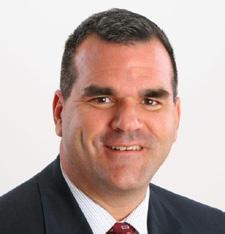
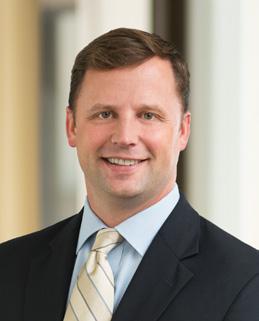 BY KEVIN G. COLLINS, ESQUIRE, ANDREW C. DALTON, ESQUIRE, AND JASON D. WARREN, ESQUIRE
BY KEVIN G. COLLINS, ESQUIRE, ANDREW C. DALTON, ESQUIRE, AND JASON D. WARREN, ESQUIRE
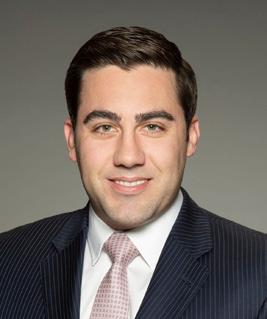
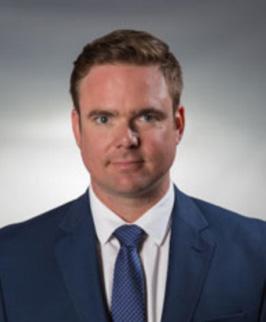
The Combined Campaign for Justice (CCJ) Cup returned on August 8, 2022 for its 8th year! The commitment, joy, and energy after more than two years of canceled events due to the pandemic were palpable. Over 200 members and friends of the Dela ware legal community gathered at the DuPont Country Club on one of the hottest days of the year for a fun-filled day on the golf course and a rocking cocktail party — and as a result we were able to raise $58,000 (after expenses) for CCJ. This marks the CCJ Cup’s most profitable year to date!
We are very grateful to everyone who came out to support CCJ, to the


sponsors who made the event pos sible, and to the DuPont Country Club for helping us make this one of the best days of the summer. Many thanks to the CCJ golf committee for their hard work in planning and execut ing such a successful day, including chairs Kevin Collins, Jason Warren, and Drew Dalton, and members An drea Brooks, Emily Bryant-Álvarez, The Honorable William Carpenter, Ed Corman, Michael Durstein, Kiadii Har mon, Brandon Harper, Jimmy Horty III, Nicholas Jenner, Jeremy Luzader, Jeremy Riley, Stephanie Riley, and Bradford Winton.
We’d be remiss if we didn’t men tion the band who kept the fun roll ing through the cocktail party: Rob
DuPont Course

Nemours Course
Team Ayres
Monica Ayres, Kathy Corcoran, Jane Sassaman, and Lisa Jackson
More pictures from the event can be found on the Combined Campaign for Justice’s Facebook page. If you have questions about this event or future CCJ events, contact Molly McPheeters at mmcpheeters@delawareccj.org.

and the Youngsters! Thanks to The Honorable James McGiffin, Dave Ba umberger, Jim Drnec, Brad Goewert, Aaron Goldstein, Leroy Jett, Greg Johnson, The Honorable Mary John ston, The Honorable Selena Molina, and Tom Walsh!
Mark your calendar for October 13, 2022 for the next CCJ event — our Oktoberfest Guest Bartender evening at Tonic in Wilmington. Join in the fun by generously tipping your favorite bartenders who will be behind the bar in shifts throughout the evening. Rob & the Youngsters will be performing and there will be lots of great raffle items. We hope to see you there! More information can be found at: https:// delawareccj.org/our-events/
Morris Nichols Arsht & Tunnell
Young Conaway Stargatt and Taylor
Gold Sponsors
Armstrong Teasdale Barnes & Thornburg
Benesch
Dalton & Associates
M&T Bank Potter Anderson & Corroon Richards Layton & Finger Skadden Arps Slate Meagher & Flom
Silver Sponsors
Bernstein Litowitz Berge & Grossmann Citi Bank
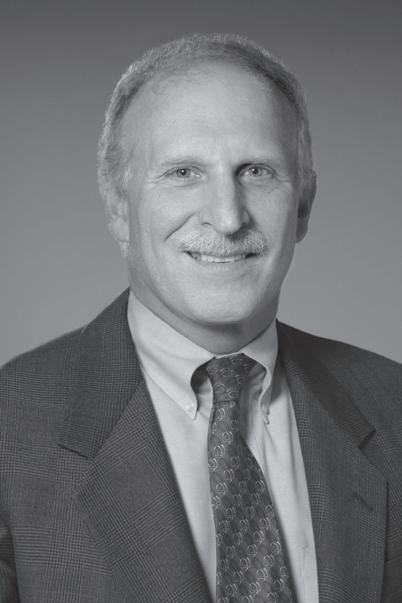
DLA Piper
DLS Discovery
Giordano Delcollo Werb & Gagne McCollom D’Emilio Smith Uebler McDermott Will & Emery Morris James
Parcels
Polsinelli
Tactix: Real Estate Advisors


Womble Bond Dickinson
Connolly Gallagher
Eckert Seamans
Incyte
Just Legal Inc.
McCarter & English Pratcher Krayer Veritext Legal Solutions Wilks Law
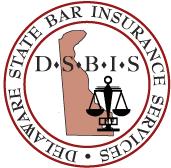
decades of risk management experience, a proprietary
a local team supported by the expertise of USI Affinity.
analysis process
brings decades of risk management experience, a proprietary risk analysis process and a local team supported by the expertise of USI Affinity.
1940, our Wilmington office has provided the insurance solutions and services that lawyers count on to protect their firms, their employees and their families.
1940, our Wilmington office has provided the insurance solutions and services that lawyers count on to protect their firms, their employees and their families.
 BY MOLLY MCPHEETERS AND MARGARETTA KROEGER
BY MOLLY MCPHEETERS AND MARGARETTA KROEGER
Molly McPheeters is the campaign coordi nator for the Combined Campaign for Jus tice. She can be reached at mmcpheeters@ delawareccj.org.

Margaretta Kroeger is the communications and marketing director at Community Le gal Aid Society, Inc. She can be reached at mkroeger@declasi.org.
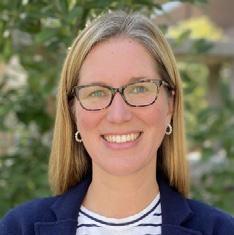
Delaware is home to three nonprofit civil legal aid agencies: Community Legal Aid Society, Inc. (CLASI), Delaware Volunteer Legal Services, Inc. (DVLS), and Legal Services Corporation of Delaware, Inc. (LSCD). Together they provide a wide range of free legal services to vulnerable people across the state, including people living in poverty, people with dis abilities, senior citizens, victims of crime including domestic violence, and people facing eviction, homelessness, and housing discrimination.
Molly McPheeters, campaign coordinator of the Combined Campaign for Justice (CCJ), and Mar garetta Kroeger, communications and marketing director of CLASI, recently sat down for a conver sation with the executive directors of each agency as they emerge from the myriad challenges of the COVID-19 crisis.
QUESTION NO. 1
What are some of the greatest legal needs for low-income and marginalized Delawareans as we come out of the COVID-19 pandemic? What trends are you seeing?
Daniel G. Atkins, Esquire Executive Director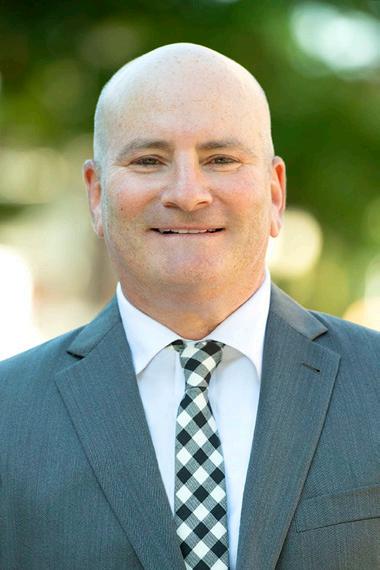
A: The pandemic has impacted everyone, but it certainly has disproportionately impacted marginalized groups, particularly people of color, people with disabilities, and people who are poor. If we look at housing, now that the eviction moratorium has ended, we are seeing 750 to 1,000 people facing eviction each month in Delaware. Studies have shown that our evic tion rate is one of the five worst in the country, and rent has increased over the last two years at a higher rate than in any other state. Evictions here are quick, easy, and cheap, making it a prime environment for a high eviction churn. Renters facing eviction need legal assistance and, due to insufficient funding, we have been able to serve only a fraction of those needing our help. We’ve also seen the pandemic have a dispropor tionate impact on people with disabilities, who face barriers to accessing healthcare and greater health risks associated with the COVID-19 virus. For many of them, COVID really is a matter of life and death, and the statistics bear that out.
We’ve also seen an increase in domestic violence rates coming out of the pandemic. We recently learned that our federal Violence Against Women Act Legal Assistance for Victims fund ing is not going to be renewed, and the timing couldn’t be worse. We currently have the re sources to assist just a fraction of those needing our help. Studies, and data we have collected on our own and from the Family Court, show that having legal aid representation in domestic violence cases is outcome determinative. You are twice as likely to get a protective order if you have legal aid than if you do not. No one should have to navigate the domestic violence system without legal assistance.
Cynthia (“Cindy”) L. DePue, Esquire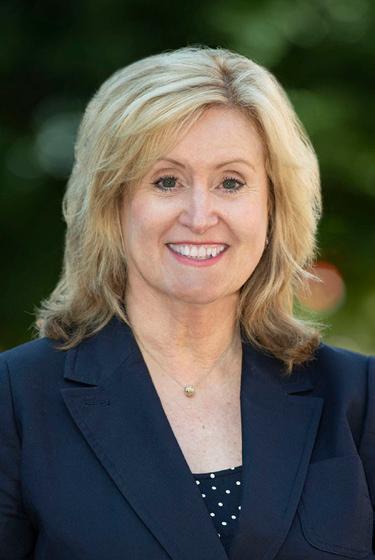
Executive Director
Legal Services Corporation of Delaware, Inc.
A: On top of eviction cases, our clients need as sistance with foreclosure cases filed by mortgage companies, and with defending collection cases filed by creditors. Many people are struggling to manage their finances, with increased rent, increased cases of domestic violence, increased prices for groceries and other essentials. This often means that their other financial obligations become overdue — how do you choose between rent and food? We’re also seeing tenants struggling to locate affordable housing, even if they have received rental assistance. The affordable housing crisis is well documented, and I’m concerned that long-term strategies and planning — although certainly admirable — won’t help this winter when a soon-to-be displaced family may be searching for a new, decent rental unit, only to be priced out.
Janine N. Howard-O’Rangers, EsquireExecutive Director
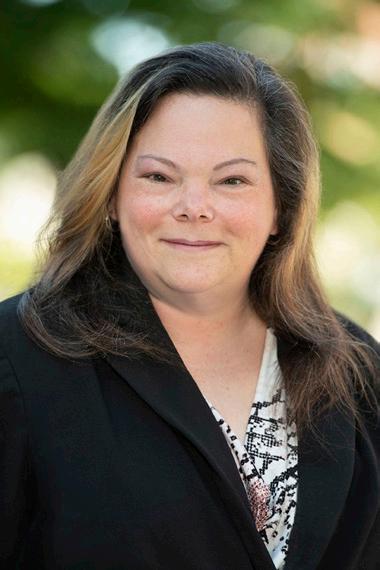
Delaware Volunteer Legal Services, Inc.
A: The pandemic wreaked havoc on our PFA (Protection from Abuse) Day program — bono attorneys used to be able to show up to court and spend all day doing triage. Remote hearings have slowed down processes and added a layer of challenge. While more time on each case can improve the quality of representation, it has cost us the ability to reach as many domestic violence survivors as we previously could. We’ve also noticed a trend in increased needs — our survivors come to us to get out of unsafe situ ations and there are added barriers, like a lack of affordable housing, which keep them from finding safety for their families.
QUESTION NO. 2
Are there any lessons you’ll take with you from the pandemic?
Dan: The interdependence of our clients and the social service system, and the importance of collaboration among social service providers has become crystal clear. Interdisciplinary col laboration — with good lines of communication, mutually supportive goals, and holistic remedies — is a key to success.
We [the three agencies] have devoted much effort over the last two years collaborating to increase our capacity to assist people in eviction cases, to make it easier for clients to access our services, and for different organizations to work together. CLASI has also developed innovative partner ships with social service providers like Child, Inc., YWCA, and Abriendo Puertas/People’s Place to provide holistic legal services to domestic violence and sexual assault survivors living in shelters across the state. We are also embracing innovative ways to meet the needs of people with disabilities. We held a vaccination clinic at our
Georgetown office to increase vaccination rates among people with disabilities, and this fall we are hiring a public health fellow to design and implement programming to improve public health for Delawareans with disabilities.
Cindy: Collaboration! As Dan mentioned, LSCD has been working with our partners at CLASI and DVLS to address the eviction crisis through a new initiative, born in the pandemic, called the Delaware Eviction Defense Project. As a result, we advocated for the creation of the Quali fied Tenant Advocate program, which allows supervised non-attorneys to represent tenants in landlord/tenant proceedings — using nonattorneys in these cases had previously been an option available only to landlords. It is encourag ing to come together, as three separate agencies, and work toward common goals for our client populations. The pandemic has underscored our collaborative relationship.
QUESTION NO. 3
What program accomplishments are you most proud of from the past year?
Janine: I am proud of how my staff handled the pandemic with flexibility, hope, and positivity. We’ve also been working on a website redesign, which will allow 24/7 access for clients to do intake, a place for DVLS staff and pro bono attorneys to review cases, and it will feature a library of resources and online trainings mak ing pro bono work easily accessible to the entire Delaware Bar. We are really looking forward to having this new website available for our pro bono volunteers and our clients sometime this fall.
We also have a new program that launched last year, the JP Morgan Chase Second Chance Career Pathways Program, to assist people who have been involved in the criminal justice sys tem with clearing up their record, so they have a better path forward in securing employment.
Dan: Despite the pandemic the agencies were able to help 7,267 people last year, which is the most clients we have ever served in a year. We have been part of significant legislative accom plishments, particularly in the disability arena. I am also proud of our efforts to pass legislation providing a right to representation in eviction cases for people who are poor, which is an impor tant part of ensuring fairness in our legal system. We cannot imagine anyone facing a criminal charge alone without legal assistance, but why do we tolerate it for someone facing homeless ness? Even though the legislation didn’t pass, we succeeded in building a movement and new partnerships, and figuring out collaborative ways to reach and serve more people who need help in eviction cases. Our coalition will continue working to pass right to representation in the next legislative session.
QUESTION NO. 4
What will be the biggest challenges facing your agency during the coming year?
Dan: The justice gap — the difference between the need for our services and our ability to meet the need — is daunting and omnipresent. Funding for legal aid has always been alarm ingly inadequate, requiring us to ration our services. Now between inflation and level or reduced funding from many sources, it is falling even further behind. In Delaware, there are 55 attorneys working for our three agencies who provide free, life-affirming civil legal services to bridge the justice gap, but there are 108,000 people living under the federal poverty line, the majority of whom have at least one civil legal is sue each year according to recent studies. If we had more funding, we would be able to help so many more people.
Cindy: The primary challenge is the uncertainty faced by many of our clients — the scarcity of affordable housing, the ability to pay rent going forward, and lingering aspects of COVID-19 on personal health and livelihoods. A recent report on the justice gap by the national Legal Services Corporation revealed that 92 percent of lowincome Americans did not receive any, or enough, of the legal help they required in the last year. Our clients often turn to us for one question, only for our staff to discover that they have two or three other legal situations that require attention, and these are only the clients who can make it to our doors. There is a huge need for our services.
The best way to support the work o f Delaware’s three nonprofit legal aid agencies is through a donation to the Combined Campaign for Justice (CCJ). Founded in 1999, CCJ is a joint fundraising initiative for CLASI, DVLS, and LSCD and serves as a cornerstone of their partnership. Funds raised from these efforts are disbursed to the agencies as received and make up 15-20 percent of each agency’s yearly budget. Gifts to CCJ keep more Delawareans housed, fed, and safe from vio lence. The more that we invest in legal aid and in breaking down the barriers to justice and safety, the healthier the Delaware com munity at large will be.
For more information about contributing to CCJ, visit: www. delawareccj.org/donate-to-ccj/
QUESTION NO. 5
What opportunities are there for the Bar to get involved with your work?
Janine: There are many ways to volunteer with DVLS. The number one way is taking on pro bono cases. We have trainings and resources for people who are taking cases outside of their typical practice areas, and the opportunity for more experienced attorneys to serve as mentors on cases. Volunteers can help with CLEs and training materials too — we try to meet the interest of each volunteer.
Email Molly McPheeters at mmcpheeters@delawareccj.org.
Email Tom McDonough at tmcdonough@dvls.org.
Celebrating pro bono work has always been endorsed by the Delaware State Bar Associa tion and in 2009, we joined in the National Pro Bono Celebration Week to dedicate one week in October to honor the hard work and outstanding efforts of our Delaware attorneys, legal organizations, legal professionals, and staff members that go above and beyond to help those in need. Since then, the im portance of pro bono work, participation, and opportunities among the legal com munity has grown annually and efforts to continue highlighting those who give their talents have created a long-standing part nership in local communities. This week recognizes and dedicates a time frame to focus to come together. In addition, the national, statewide, and local responses have encouraged more participation in client-based programs, volunteer training, recruitment events, and new projects.
This year, Pro Bono Week will be celebrated from October 23 – 29, 2022. Thousands of events take place dur ing the designated week with the goal of increasing free services as economic conditions have worsened. The National Celebrate Pro Bono Week was created to recognize the professional responsibility and individual ethical commitment that each lawyer acquires to do their part in giving back. Each year, the National Pro Bono Week Committee chooses a theme to focus on. Last year’s theme was “Mov ing Forward in a Post-Pandemic World,” which emphasized the need for services in incredibly tough economic times and to spread access to justice to poor and vulnerable populations. This year’s theme,
A special thank you to our dedicated legal community here in Delaware who have donated valuable time, undeniable energy, and tremendous talent to provide access to justice for our most vulnerable communities.
“Law In Everyday Life,” focuses on how legal services can assist indigent and disad vantaged people in all facets of life, according to ABA President Deborah Enix-Ross.
In 2010, the DSBA Pro Bono Awards were renamed the Christopher W. White Distinguished Access to Justice Awards Breakfast to commemorate and honor the late attorney, Christopher W. White. Chris was a long-time attorney with Community Legal Aid Society of Delaware (CLASI) and a member of the Delaware State Bar Association who left us too soon from a tragic accident in downtown Wilmington. He worked selflessly to advocate on behalf of the impoverished, homeless, disabled, elderly, and troubled people of Delaware. CLASI is a part of the Combined Campaign for Justice of Delaware and joins Delaware Volunteer Legal Services (DVLS) and the Legal Services Corporation of Delaware to give free legal services to our state’s most vulnerable residents.
As in previous years, DSBA is partnering up with DVLS for the semi-annual Wills for Seniors event. On Tuesday, October 25, a free Wills Training by DVLS will take place at the DSBA office in preparation for our Wills for Seniors event on Saturday, October 29. The event offers, at no cost, estate-planning services that include wills, advance heath care directives and financial powers of attorney services. Volunteer attorneys are paired up with clients for an hour session where all documents are signed, witnessed, notarized, and in immediately effective. Jacki Chacona of DVLS continues to bring together an incredible team of volunteer attorneys, paralegals, and staff members to help the event run smoothly and successfully. For more information, please contact Jacki Chacona at jchacona@dvls.org.
Save the date for the 2022 Christopher W. White Distinguished Access to Jus tice Breakfast Awards that will take place at Riverfront Events in Wilmington on Thursday, October 27 at 8:00 a.m. Attendance at this event has grown every year and we look forward to celebrating, embracing, and acknowledging our Delaware community during Pro Bono Week this year. Thank you to our sponsors for their generous support and pro bono efforts!
A sincere congratulations and huge thank you to all the 2022 Christopher W. White Distinguished Access to Justice Award recipients listed in the sidebar. Your hard work and diligent efforts have not gone unnoticed and DSBA is always proud of our
members’ commitment to pro bono work. A special thank you to our dedicated legal community here in Delaware who have donated valuable time, undeniable energy, and tremendous talent to provide access to justice for our most vulnerable communities.
For more information on the DSBA Access to Justice, please visit www.dsba. org and for ideas/suggestions or email Deirdre Sadler-Crew at dsadlercrew@ dsba.org.
Deirdre Sadler-Crew is the new DSBA Director of Small Firms and Law Office Management. With over 27 years of experi ence and service in the Dela ware courts as a judicial case manager and secretary, she brings a willingness to learn, inspires new ways to connect, and provides a dedicated level of ser vice to all members of the Delaware Bar and staff. She can be reached at dsadlercrew@dsba.org.
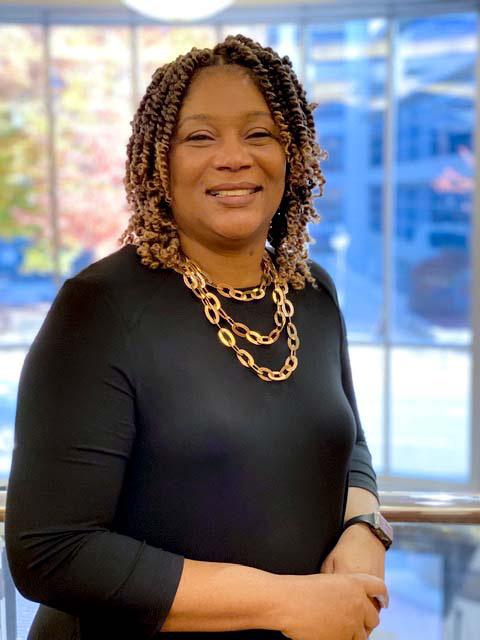
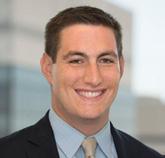

This award is presented to a member of the Bar who has shown an exemplary recent contribu tion to pro bono services (generally in the last one to three years) and stands as a role model to other attorneys. The criteria includes, but is not limited to: The number of pro bono hours recently devoted to the legal representation of indigent clients over the lawyer’s career; the number of cases accepted for pro bono representation; consistency, flexibility, and accessibility in accepting pro bono cases; and the lawyer’s commitment and service on committees dedicated to promoting and supporting the provision of legal services to those in need.
The Commitment Award WILLIAM L. CHAPMAN JR., ESQUIRE POTTER ANDERSON & CORROON LLP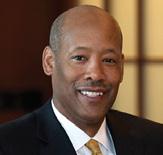
This award is presented to a member of the Bar who has demonstrated sterling commitment to pro bono work throughout his or her career by dedicating time and energy to the support and provision of legal services. The criteria includes but is not limited to: The number of pro bono hours devoted to the legal representation of indigent clients over the lawyer’s career; the number of cases accepted for pro bono representation over the lawyer’s career; and the lawyer’s commitment and service on committees dedicated to promoting and supporting the provision of legal services to those in need over the lawyer’s career.
This award is presented to a legal organization (legal department or law office) that has demonstrated outstanding leadership in the field of pro bono service to Delaware’s indigent population based on, but not limited to the following criteria: The number of pro bono hours the organization contributes to the direct representation of indigent clients; the number of cases the organization accepts for pro bono representation; flexibility and accessibility in accepting cases; The organization’s commitment and service on committees dedicated to promoting and supporting the provision of legal services to those in need; financial support to agencies providing legal services to Delaware’s indigent population; the percentage of attorneys in the organization who accept pro bono cases; and fostering a culture that rec ognizes the value of pro bono services.
Awarded to an individual lawyer, legal professional, or organization principally including lawyers, which demonstrates outstanding commitment to, and work for, children in the provision of legal or community services. It may be given to volunteers or those employed in the provision of legal services for children. This award is given as warranted, not necessarily annually. The sculpture reflecting this award was created by Charles Allmond, Esquire, and donated by the former and current partners of the Wilmington office of Duane Morris LLP and is on display in the offices of the Delaware State Bar Association. A plaque is given to the recipient in recognition of this award.

David S. Swayze, Esquire, of Parkowski, Guerke & Swayze was honored with “The Order of the First State,” Thurs day August 18, 2022, by Governor John Carney. The ceremony occurred at Woodburn, the Governor’s Mansion in Dover. The Order is the highest and most prestigious honor that can be bestowed by the Governor upon a citizen of Delaware and it is only given in limited circumstances for meritorious service to Dela ware and its citizens. Dave was congratulated during the ceremony by family, friends, colleagues, members of the Governor’s Cabinet and others whom he has known throughout his legal career.


Referencing historical figures of “six wise men” who stood next to political leaders, “David Swayze has stood along governors and other lead ers going back to Pete du Pont,” said Governor Carney, referencing the late former Governor du Pont, who served from 1977 to 1985. “But there are lots more reasons to recognize this man as a wise man of Delaware, and an advisor and counselor,” added Governor Carney. “When I think about the last 50 to 60 years and the progress we’ve made in Delaware, no one is more representative than this wise man standing next to me.”
The citation accompanying the Award acknowledged Dave’s “outstanding Efforts, Knowledge, Integrity, Prudence and Ability as displayed by the evidence of his Accomplishments.” The five-plus decades of his distinguished career included his service as an Officer in the U.S. Army 4th Infantry Division from 1969 to 1972, and his service on the Delaware Economic and Advisory Council (DEFAC), the Wilmington Economic and Advisory Council (WEFAC), chair man of the Board of Downtown Visions, chairman of the Delaware Sentencing Research and Evaluation Committee, chairman of the American Red Cross of the Delmarva Peninsula, chairman of the Wilmington Housing Authority and other boards, councils and com missions too numerous to mention. His career of service has been previously recognized through the State of Delaware’s Distinguished Service Award, the Delaware Council on Crime and Justice’s Com munity Service Award, and the New Castle County Chamber of Commerce’s Wallace Johnson Community Service Award. Last but certainly not least, he is an inductee into the Mount Pleasant High School Hall of Fame.
Dave was visibly moved upon receiving the Gov ernor’s recognition. “This is one of the best days of my life,” he said. “Over the last five decades of my life, I’ve done no more rewarding work than my work on behalf the State of Delaware.” He added, “This is the best recognition I could possibly receive from those five decades of loving endeavor,” saluting the colleagues and family in attendance, particularly his wife, Carolyn DePew-Swayze.
Dave’s career has been devoted to government law, administrative law, and legislation with a focus towards banking, insurance, and environmental regulation. Dave has been a member of Parkowski, Guerke & Swayze since 2003 when he joined the firm with Christine Schiltz, Esquire, and Mike Teichman, Esquire. His knowledge and experience fostered the creation of a government relations di vision within PGS, while adding to PGS’ existing administrative and environmen tal law practice. Adding Dave, Christine and Mike to PGS brought the firm to a new and different level within Delaware. Mike Parkowski, Esquire, described his long relationship with Dave this way: “Working with Dave during the past 20 years has been a positive and rewarding experience. The award of the Order of
the First State speaks highly of his many legal and public service accomplishments. Dave is not only an excellent lawyer, but also an even better person and friend.”
Christine Schiltz said of Dave, “I have had the privilege of working with Dave for almost the entirety of my career. He has been a tremendous mentor, colleague, and friend. His commitment to the legal profession and public service is unparalleled. Over the past 25 years, I have been inspired by his great intellect, humility and political acumen, and his love of the State of Delaware. I cannot think of a more deserving individual for this pres tigious award.” Mike Teichman added that, “Dave has been a true friend and great advocate for the State of Delaware. He has raised the bar for future awardees of this Order.”
As Managing Partner of PGS, taking over that role when Michael Arrington was appointed to the Family Court Bench, I have always appreciated Dave’s willingness to counsel and provide guid ance to me and others at our firm. His experience and perspective from his prior work at larger firms has also been invaluable to me as Managing Partner. He has always been one of the “larger than life” attorneys here in Delaware and we are extremely fortunate that he is our friend and colleague.
Please join me and everyone else who has known and worked with Dave throughout his storied legal career in thanking Governor Carney for recognizing David S. Swayze, Esquire, for his distinguished service to our State and its citizens.
Vince Robertson is the Managing Partner of Par kowski, Guerke & Swayze, P.A. He can be reached at vrobertson@pgslegal.com.
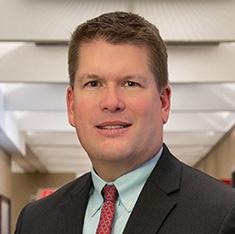
The Editorial Board welcomes submissions from attorneys and other professionals who wish to share their expertise on law-related topics in the DSBA Bar Journal
For information on submitting articles for publication in the Bar Journal, please contact Rebecca Baird at rbaird@dsba.org.

He has always been one of the “larger than life” attorneys here in Delaware and we are extremely fortunate that he is our friend and colleague.
No matter what kind of law a lawyer practices, there is one skill that is essential and, indeed, can be said to be at the root of everything a lawyer does: persuasion. Every day a lawyer is trying to persuade someone — a judge, a jury, an attorney on the other side of the case or the contract negotiation, a client with unrealistic expectations or desiring to engage in questionable tactics, a potential client looking to retain a lawyer. All the hard work, all the attention to detail, all of the encyclopedic knowledge of the subject matter ultimately doesn’t matter if the lawyer can’t persuade. We are persuaders.
In Influence Is Your Superpower, Professor Zoe Chance takes readers on a marvelous adventure — a journey to find habits and strategies to increase one’s influence. This is not a book about persuasive writing or rhetorical skills — rather, in many respects, it is about becoming a better person. Put another way, it is about taking an approach to life that will increase your ability to influence and persuade others.

Chance starts with alligators. Over their 47 million years or so on this planet, they have evolved for maximum efficiency. They can weigh up to half a ton, but have a brain not much bigger than a tablespoon. They can go up to three years without eating. They don’t waste physical or mental energy. Chance tells us that she visited an alligator farm and was invited to feed the gators. When she tossed the meat, if it was within the gator’s “bite zone,” the gator would snap at the meat and eat it. But, if the meat fell just outside the bite zone (but still close to the gator), the alligator just ignored it. The gator’s small brain balanced the effort versus the reward. Food in the bite zone, eat it. Food outside the bite zone, ignore it.
Humans have an alligator brain in many respects. We all like to think that we are driven by intellect and argument and rational decision-making, but we are sometimes acting the same way as gators. If something is easy, we’re more likely to do it. If we’re tired, we’ll often resort to our gator brain and just let it decide.
Much decision-making is based on instincts and habits and is relatively effort less. This is our alligator brain, or what Chance terms “system 1” thinking. When, however, we have to do careful analysis, plan, concentrate, follow detailed instruc tions, then we are engaged in higher-level thinking, which Chance dubs “system 2” thinking. We all want to believe we are all “system 2” thinkers all the time, except we’re not. We all want to believe that we always make decisions based on careful analysis and just the facts, except that we don’t. Ultimately, one of the bedrock prin ciples of influencing others is this: People tend to take the path of least resistance. So, if you want to influence others and bring them around to your point of view, what do you need to do? You need to make it easy. You need to make your point of view, and your desired outcome, the path of least resistance.
In 2015, Dominos started a campaign for its customers, where all they needed to do was send a text to Dominos of a pizza emoticon, and, presto, a pizza would be delivered to their address and charged to their credit card. Sales increased and,

in a few short years, Dominos overtook Pizza Hut to become the largest pizza company in the world.
Reminders make things easier too. In a study in New York City, research ers sent text reminders to those accused of low-level offenses reminding them to appear in court on the particular date and time for their arraignment or hear ing. Attendance went up eight percent, reducing the number of arrest warrants issued and saving valuable criminal jus tice system resources (note — there were still too many no-shows).
If you want to exercise more, commit to doing it with someone else. It’s harder to stand up a friend, then it is to stand up yourself. Not wanting to disappoint a friend is often the extra motivation needed to get something done. Put cookies in an opaque container or out of sight — they’re easier to resist when you don’t see them.
The way issues and decisions are “framed” also affects influence. “Global warming” sounds bad, but “climate change” sounds more manageable and less a call to action. Not surprisingly, those more concerned about rising tem peratures and carbon emissions are more apt to use the phrase “global warming,” or, the newer phrase, “climate crisis.” “Right to life”/“right to choose” is an other example of using framing to try and influence others.
Car salesmen are famous for asking the question, “What will it take?” But it’s also a very clever question and can be used in multiple settings. Chance tells the story of Gloria Steinem in a rural vil lage in Zambia. She sat down with the women in the village who were mourning over the loss of two young women sold
in the sex-trafficking business. “What would it take,” Steinem asked, “to stop this from happening again?” The vil lagers responded: “An electric fence.” Why an electric fence? Because it would stop the elephants from devastating the corn fields the villagers planted every year, leading to more food and more money for the village. So Steinem raised the few thousand dollars necessary, the villagers installed the fence, and in the years following the fence’s construction, no more village women were lost to sextrafficking.

Chance also describes the strategy she terms “the kindly brontosaurus.” Great
salesman will often call on a potential client six to seven times, but the average salesman, only three times. Persistence is a virtue. But sometimes it is enough just to always be in view (like a brontosaurus). Your continuing presence in the potential client’s view will often lead to dividends.
Deep listening is another attribute of influential people. Shifting attention from yourself to others is another. Per suading others is less about the power of our rational and logical and compelling arguments, and more about the way we treat and interact with others. Zoe Chance’s book by itself isn’t necessarily going to turn you into a master per suader, but it can start you down that path. Lawyers are persuaders, and, if I’ve done my job, perhaps I’ve persuaded you to read Influence Is Your Superpower
Richard “Shark” Forsten is a Partner with Saul Ewing Arnstein & Lehr LLP, where he practices in the areas of commercial real estate, land use, business transactions, and related litigation. He can be reached at Richard.Forsten@saul.com.
We all want to believe that we always make decisions based on careful analysis and just the facts, except that we don’t. Ultimately, one of the bedrock principles of influencing others is this: People tend to take the path of least resistance.
• 8 tablespoons unsalted butter, melted
• ¾ cup granulated sugar
• ¼ cup light brown sugar
• 1 jumbo egg
Two items that are year-round staples in my pantry are chocolate chips and pumpkin puree. The chocolate chips speak for them selves — how many times have you come home from work or school and decided to whip up a batch of chocolate chip cookies to destress?

But why the pumpkin puree? Beyond pies, pump kins puree is a featured ingredient in many sweet and savory dishes, such as soups (coconut pumpkin curry), muffins, and lattes. Please note that I’m refer ring to pure pumpkin puree, not pumpkin pie filling, which already contains sugar and spices. My favorite brand is Farmer’s Market Organic Pumpkin should you happen to see it in the baking aisle.
It seems only fitting to marry these two staples in October. After some experimenting, I developed this cookie recipe for a sweet treat, richer than anything you will find among your trick-or-treat treasures.
In terms of taste, it’s a cross between your favorite box of crispy spiced wafers and a soft hermit cookie. In terms of texture, the scales tips in favor of the hermit’s chewiness.
Susan E. Poppiti is a math educator and program manager at Educational Connections. Susan can be reached at spoppiti@hotmail.com.

• ¼ cup blackstrap molasses
• 1/3 cup pumpkin puree
• 2 cups flour
• ½ teaspoon salt
• 1 teaspoon cinnamon
• ½ teaspoon nutmeg
• 2 teaspoons baking soda
• 2/3 cup semi-sweet chocolate chips
Preheat the oven to 375 degrees and line a baking sheet with parchment paper.
Using a hand mixer, cream the butter, granulated sugar, and brown sugar in a large bowl. Then mix in the egg, molasses, and pumpkin puree.
In a separate bowl, combine the flour, salt, cinnamon, nutmeg, and baking soda. Gradually incorporate the dry ingredients into the creamed butter and sugar mixture. The dough may appear dry at first but will quickly become slightly sticky, similar to a chocolate chip cookie dough. Then, fold in the chocolate chips.
Spoon the dough onto the baking sheet with a table spoon and gently flatten the tops. Bake for 12 to 14 minutes and remove to a cooling rack. This recipe will make 2 to 2 ½ dozen, depending on size.
The deep molasses color and spicy flavor pair well with a Madagascar vanilla bean or butter pecan ice cream.
Have fun baking some homemade treats!





FOX ROTHSCHILD LLP has an opening for an experienced real estate attorney. This position may reside in any of the Firm’s offices. The ideal candidate will have at least 5+ years of general real estate law experience and will have a background in all types of real estate transactional work including purchase/ sale transactions, leasing, title reviews, survey reviews, and realty transfer tax matters. Experience in sophisticated real estate transactions is required. Experience with telecommunications matters (e.g., telecommunications leasing) is helpful, but not required. An excellent academic record, strong writing skills, strong contract drafting skills, good judgment/ analytic skills, and excellent organiza tional skills are required. Large law firm experience is preferred, but not required. Must be licensed to practice law in the state where the office resides. Equal Opportunity Employer – vets, disability. We are not currently accepting resumes from search firms for this position. Link to apply: https://www.foxrothschild.com/ careers-for-attorneys/open-positions.
JACOBS & CRUMPLAR, P.A., with offices in Wilmington, Dover and Millsboro, seeks a motivated Attorney with civil litigation experience and/ or worker’s compensation. Candidate must possess a strong passion for rep resenting others. Salary is dependent on prior experience and skill level. Send cover letter and resume to gina@ jcdelaw.com.
s eeks Delaware licensed attorney with 2-5 years of experience to work in our estate planning/administration and/or residential real estate practice. Candidate must have strong communication and interpersonal skills. Full-time or Parttime available. Great opportunity for the right candidate to have control over their own client base. Send resume and writ ing sample to vcarr@carrlawde.com.
INSURANCE DEFENSE FIRM
located in Center City Philadelphia is seeking an associate to work directly with Partner in the medical malpractice and general liability departments. One to two years of experience required. Applicants must have Pennsylvania and New Jersey license. Delaware license is preferred but not a requirement. Salary is commensurate with experience level. The firm offers Medical and Dental Coverage as well as 401 K benefit pack age. Send resume to the office manager via email at LZagacki@naulty.com.
MENTAL LAW ASSOCIATE: Fox Rothschild LLP is seeking an environ mental law associate. The ideal candidate will have 1 to 4 years of environmentrelated experience. Previous experience with regulatory compliance, chemical handling and exposure matters, and environmental transactions and/or litiga tion preferred. Strong academic record and excellent writing skills are required. Large law firm and/or in-house experi ence preferred. This position will reside in either our Atlantic City, Bucks County (Warrington), Chester County (Exton), Greensboro, Montgomery County (Blue Bell), Morristown, Philadelphia, Princeton, or Wilmington offices. The candidate must be licensed to practice in the state where the office resides. Equal Opportunity Employer – vets, disability. We are not currently accepting resumes from search firms for this position. Link to apply: https://www.foxrothschild.com/ careers-for-attorneys/open-positions.
M c ANDREWS LAW OFFICES is hiring a Delaware special educa tion attorney. Position includes litiga tion, client counseling, and review of educational records. Applicants must demonstrate superior research and writ ing skills, strong public speaking, and passionate legal advocacy. Prior special education experience preferred but not required; interest in disability rights necessary. Send resume, writing sample, and salary requirements to kryan@ mcandrewslaw.com.
PARSONS & ROBINSON, P.A. seeks a Delaware licensed attorney for a fulltime or part-time position to join its office in Ocea n View, DE. Experience in the areas of real estate and estate planning/ estate administration is preferred. Supe rior communication, interpersonal and drafting skills are required as well as the ability to work both independently and as a team member. Please submit resume and cover letter to Robbie@steve-parsons.net.
MG+M THE LAW FIRM is recruiting an Associate with 0-6 years of experience for our Wilmington, Delaware office. This associate will be working primarily on Delaware and national civil litiga tion, including commercial, general, and products liability litigation. Delaware bar license or pending admission is required. This is an excellent opportu nity to join a nationally recognized and growing defense firm with opportuni ties to perform challenging legal work hands on and work directly with clients on day one. Candidates should have strong work ethic, writing ability, and organizational skills. MG+M offers an excellent benefits package with a hybrid work environment. Please email resume to wlarson@mgmlaw.com.
WHITE AND WILLIAMS LLP’S DELAWARE OFFICE is actively re cruiting for its Product Liability practice group. We represent some of the largest companies in the world in complex, high stakes cases and are looking for lawyers with 1 to 3 years of litigation experience to join our team. We offer a flexible, hy brid home/office work schedule backed up by 24x7 technical support. In addition to a competitive salary and excel lent benefits, we are committed to the professional development of our young lawyers, including through trial advocacy programs, extensive client contact, and courtroom opportunities. Delaware Bar admission or a willingness to sit for the Delaware Bar is required. Please send your resume to Alejandra Hayward at haywarda@whiteandwilliams.com for consideration.
KINS LLP seeks an associate with 0-5 years of experience to work in our IP, complex commercial, and corporate litigation practices. Delaware Bar admission (or pending) required. We are looking to add a team member with strong writing and advocacy skills. We offer a competitive salary and benefits and a collegial work environment. Interested applicants should send résumé, along with a writing sample, to info@skjlaw.com.
Please check our website for details about the positions. http://www.declasi.org/ employment/.
JUSTICE currently has employment opportunities available for Deputy Attorney General positions in mul tiple divisions. For all opportunities and full job descriptions, please visit: https://attorneygeneral.delaware.gov/ executive/hr/career-opportunities/.
ASSOCIATE ATTORNEY: The law offices of Marshall Dennehey Warner Coleman & Goggin, a leading civil defense firm, is seeking an Associate Attorney for its Wilmington, DE of fice with 2 to 5 years of civil defense litigation experience. Medical Mal practice experience preferred, but not required. The successful candidate will assist in defending medical professionals including physicians, nurses and others, as well medical institutions, including hospitals and nursing homes, in what are often large expo sure and complex cases. In addition, the hire will assist in defending a variety of high exposure General Li ability matters. Firm offers a sound future, competitive salary and an excellent benefits package. Candi dates should submit resume to HRRe cruiter@MDWCG.com. We are an Equal Opportunity Employer AA/M/
PRACTICE seeks Delaware Attorney:
To represent clients in Court, to assist with motion practice, discovery, re search and case management. The ideal candidate possesses a demonstrated interest in Family Court work, litiga tion experience, good people skills and empathy for clients. We pride ourselves in work ethic, fairness, communication and respect. Training and guidance provided. Part-time or flexible schedule possible. A great opportunity for the right candidate. Please send resume and cover letter including relevant ex perience to george@tsakataraslaw.com.
The Delaware Department of Educa tion is seeking attorneys admitted to practice in the State to serve as Panel Chairs for special education due pro cess hearings pursuant to 14 Del C., Sec. 3135 et seq. Each hearing officer must: (1) have knowledge of, and the ability to understand, the provisions of the IDEA, and state and federal regulations pertaining to the educa tion of children with disabilities, and the legal interpretations of the IDEA by federal and state courts; (2) have the knowledge and ability to render and write decisions in accordance with appropriate, standard legal practice, in cooperation and consultation with the other hearing officers appointed to a given hearing panel; and (3) complete training as required by the Secretary of Education to ensure adequate knowledge and competent performance. For additional information regarding re quirements and application please visit http://www.doe.k12.de.us/hearingof ficer or contact: Dale Matusevich, Director Exceptional Children Resources, Delaware Department of Education, John G. Townsend Building, 401 Federal Street, Suite 2, Dover, Dela ware 19901, E-mail: dale.matusevich@ doe.k12.de.us. Phone: (302) 735-4210. Fax: (302) 739-2388.
ASSOCIATE ATTORNEY: Marshall
Dennehey Warner Coleman & Goggin, a leading civil defense litigation firm, is seeking an Associate Attor ney for its Wilmington, DE office with 2 to 4 years of civil litigation experience to defend a wide variety of Professional Liability matters including Architects & Engineers, Insurance Agents & Brokers and many other professionals. Firm offers a sound future, competitive salary and an excellent benefits package. Candidates should submit resume to HRRecruiter@MDWCG.com. We are an Equal Opportunity Employer
AA/M/F/D/V.
ASSOCIATE ATTORNEY: Marshall Dennehey Warner Coleman & Gog gin, a leading civil defense litigation firm, is seeking an Associate Attorney for its Wilmington, DE office with 1 to 3 years of Workers’ Compensation litigation experience to join a thriving employer’s side practice team. Firm offers a sound future, competitive salary and an excellent benefits package. Candidates should submit resume to HRRecruiter@MDWCG.com. We are an Equal Opportunity Employer AA/M/F/D/V.
Furnished Office with 11’X7’ Window Plus 8’X7’ Workstation Plus Shared Access to Conference Room (14’X12’), Kitchen, and Reception Area; $900; (302) 888-1275.
OFFICE FOR RENT in a beautiful historic building. Shared services and facilities include conference and large reception area. Some furniture available. Reasonable rent. Excellent opportunity to open a new practice or continue a small practice in a collegial atmosphere. Call Bayard Marin (302) 658-4200.


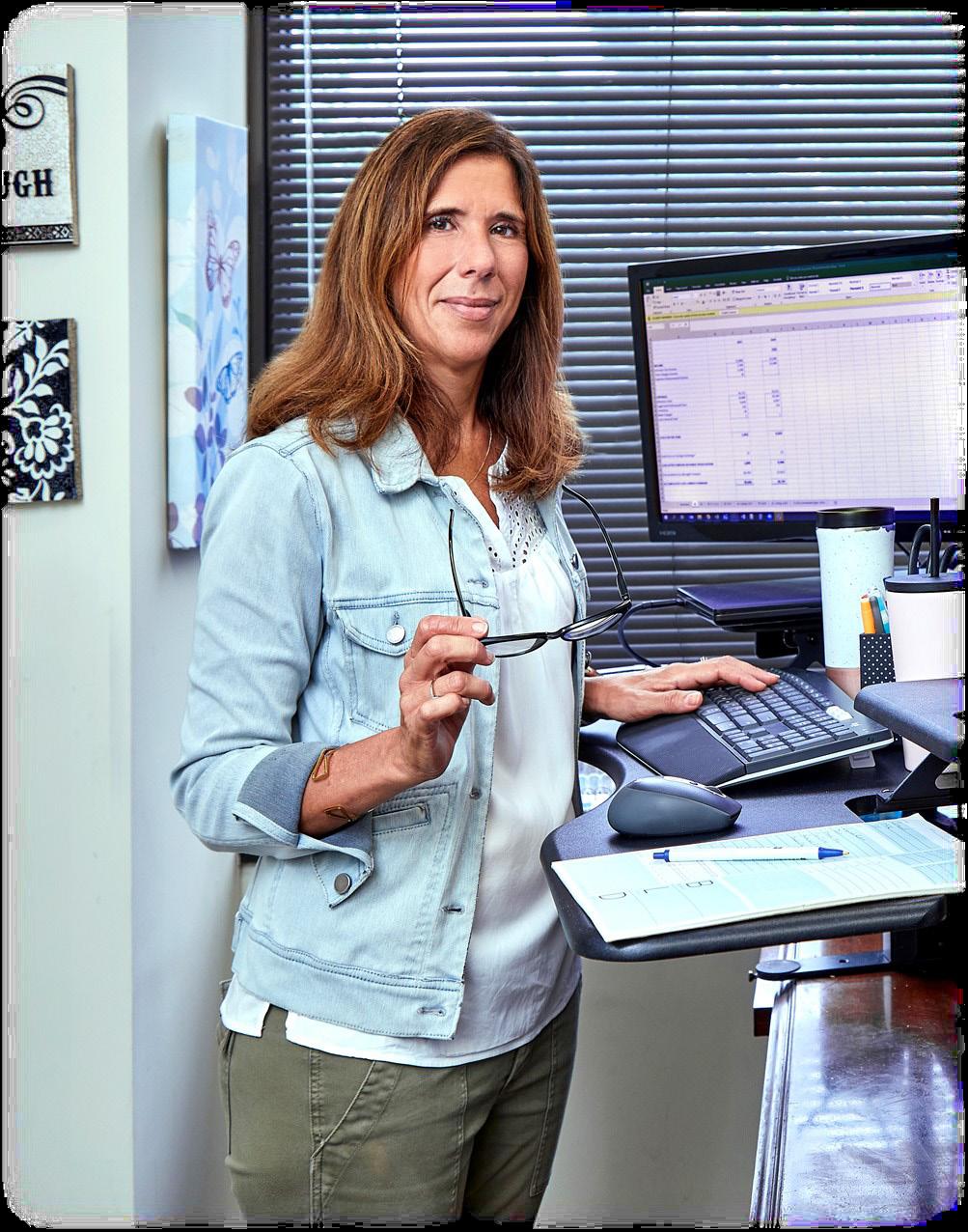
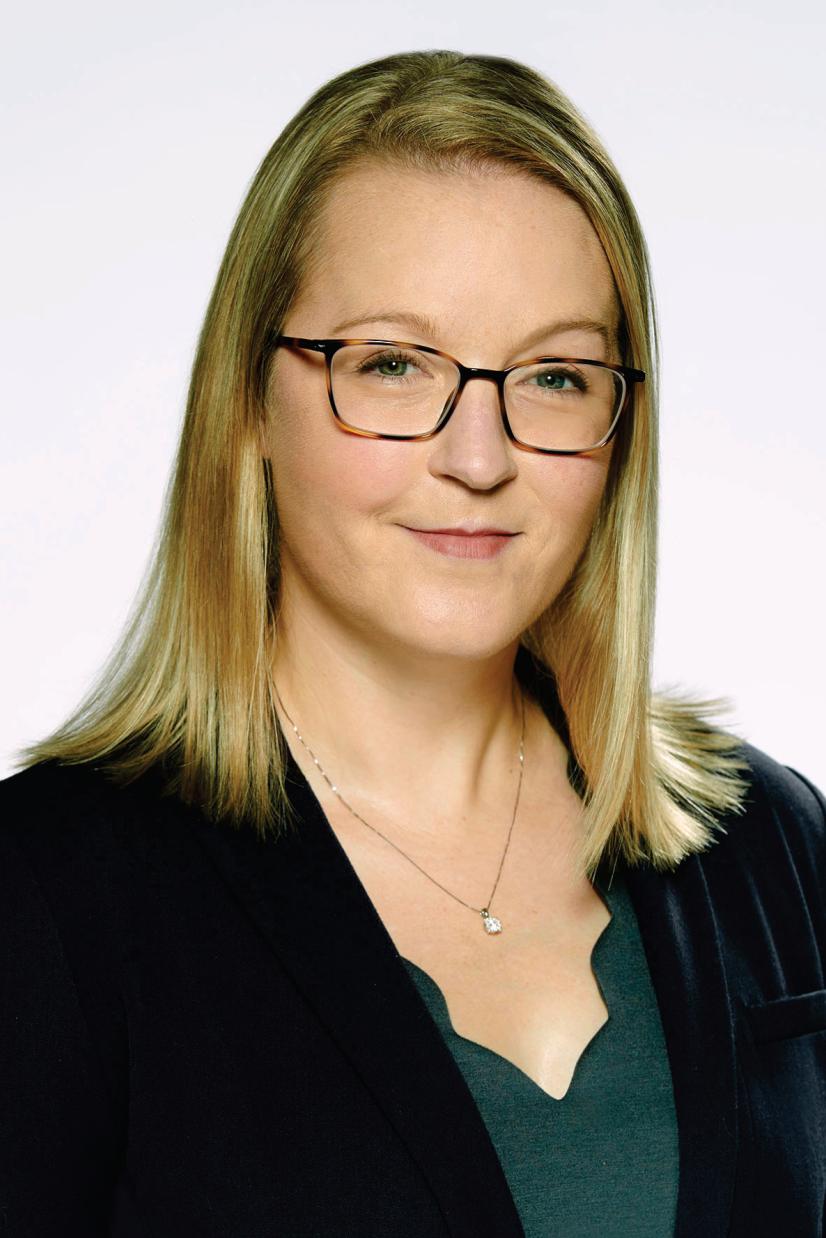
Bulletin Board rates are $50 for the first 25 words, $1 each additional word. Additional features may be added to any Bulletin Board ad for $10 per fea ture. The deadline to place a Bulletin Board ad is the 15th of the month prior to the month of publication.
All Bulletin Board ads must be received electronically and prepayment is re quired. Submit the text of the Bulletin Board ad and payment to rbaird@dsba. org. For more information, contact Rebecca Baird at (302) 658-5279.

Providing pro bono service to persons of low income is more than just a good deed. There are benefits to the at torney, as well. You entered the profession to help people and to grow in your understanding of the law. You care about your community. You care about your own reputation in the community. Attorneys who help others gain access to justice gain not just a reputation for being a good person, but the skills and connections that make them leaders in the legal profession. Here are some places that could definitely use your help:
THE COMMUNITY LEGAL AID SOCIETY, INC.
CLASI provides free legal services to people with disabilities, seniors, victims of housing discrimination, victims of domestic violence, and people living in poverty.
COMMUNITY LEGAL AID SOCIETY, INC. (NCC)
100 West 10th Street, Suite 801 Wilmington, Delaware, 19801
P: (302) 575-0660
COMMUNITY LEGAL AID SOCIETY, INC. (Kent)
840 Walker Road, Dover, DE 19904
P: (302) 674-8500
COMMUNITY LEGAL AID SOCIETY, INC. (Sussex)
20151 Office Circle Georgetown, DE 19947
P: (302) 856-0038
DELAWARE VOLUNTEER LEGAL SERVICES, INC.
DVLS serves indigent residents who meet the federal poverty income standards and have is sues involving PFAs, divorce, custody, domes tic violence, guardianship, housing, landlord/ tenant matters, wills, government benefits, homeownership and consumer issues.
DELAWARE VOLUNTEER LEGAL SERVICES, INC.
P.O. Box 7306 Wilmington, DE 19803
P: (302) 478-8680
LEGAL SERVICES CORPORATION OF DELAWARE, INC.
The LSCD is a private non-profit law firm which helps low-income families. Their focus is pri marily on safe and affordable housing, financial stability and consumer protection.
LEGAL SERVICES CORPORATION OF DELAWARE, INC. (NCC)
100 West 10th Street, Suite 203 Wilmington, DE 19801
P: (302)-575-0408
LEGAL SERVICES CORPORATION OF DELAWARE, INC. (Kent)
24A Hiawatha Lane Dover, DE 19904
P: (302)-734-8826
LIMITED LEGAL ASSISTANCE PROGRAM/SELF-HELP CENTER
The Courts offer a limited program whereby volunteer attorneys can provide eligible selfrepresented litigants with a one-time 15 minute meeting. The program does not require meeting with the client outside of this program. Cur rently, the days for this service are Thursdays from 11 a.m. until 1 p.m.
LIMITED LEGAL ASSISTANCE PROGRAM/SELF-HELP CENTER
500 N. King Street, Suite 2500 Wilmington, DE 19801
P: (302) 255-0476
The OCA is a non-judicial state agency charged with safeguarding the welfare of Delaware’s children, particularly in the areas of child abuse and neglect.
OFFICE OF THE CHILD ADVOCATE (NCC)
900 King Street, Suite 210 Wilmington, DE 19801
P: (302) 255-1730
9
OFFICE OF THE CHILD ADVOCATE (Kent)
400 Court Street Dover, DE 19901
P: (302) 672-1125
OFFICE OF THE CHILD ADVOCATE (Sussex)
6 West Market Street, Suite 2, Georgetown, DE 19947
P: (302) 856-5720
This page of the DSBA website assembles vari ous requests from the community for volunteer service. While not always legal in nature, the requests still provide a chance to give back to the community for good causes.
DSBA VOLUNTEER OPPORTUNITIES www.dsba.org/volunteer/
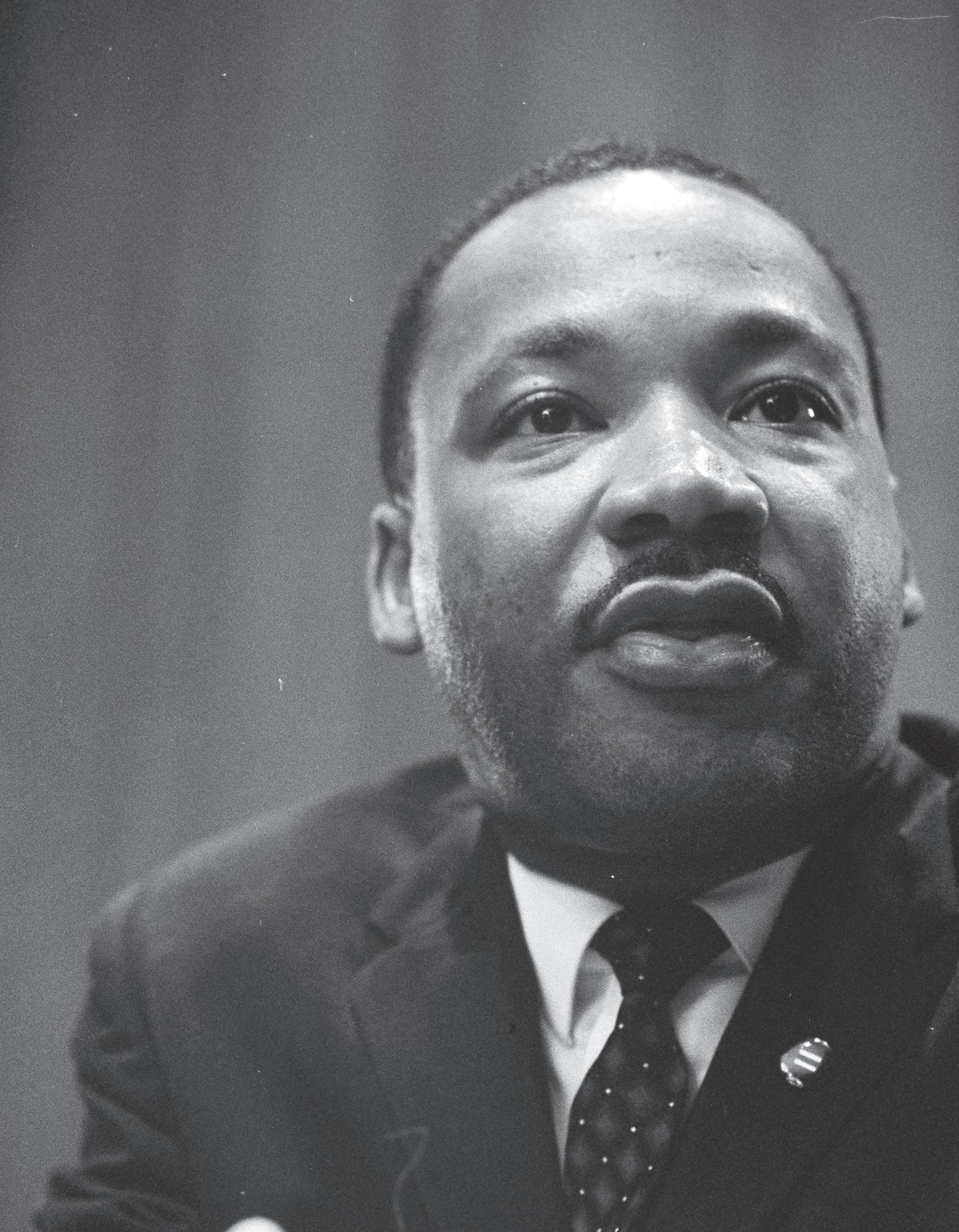
Liability
leading insurance broker
Liability, USI Affinity
been protecting
that attorneys
the
